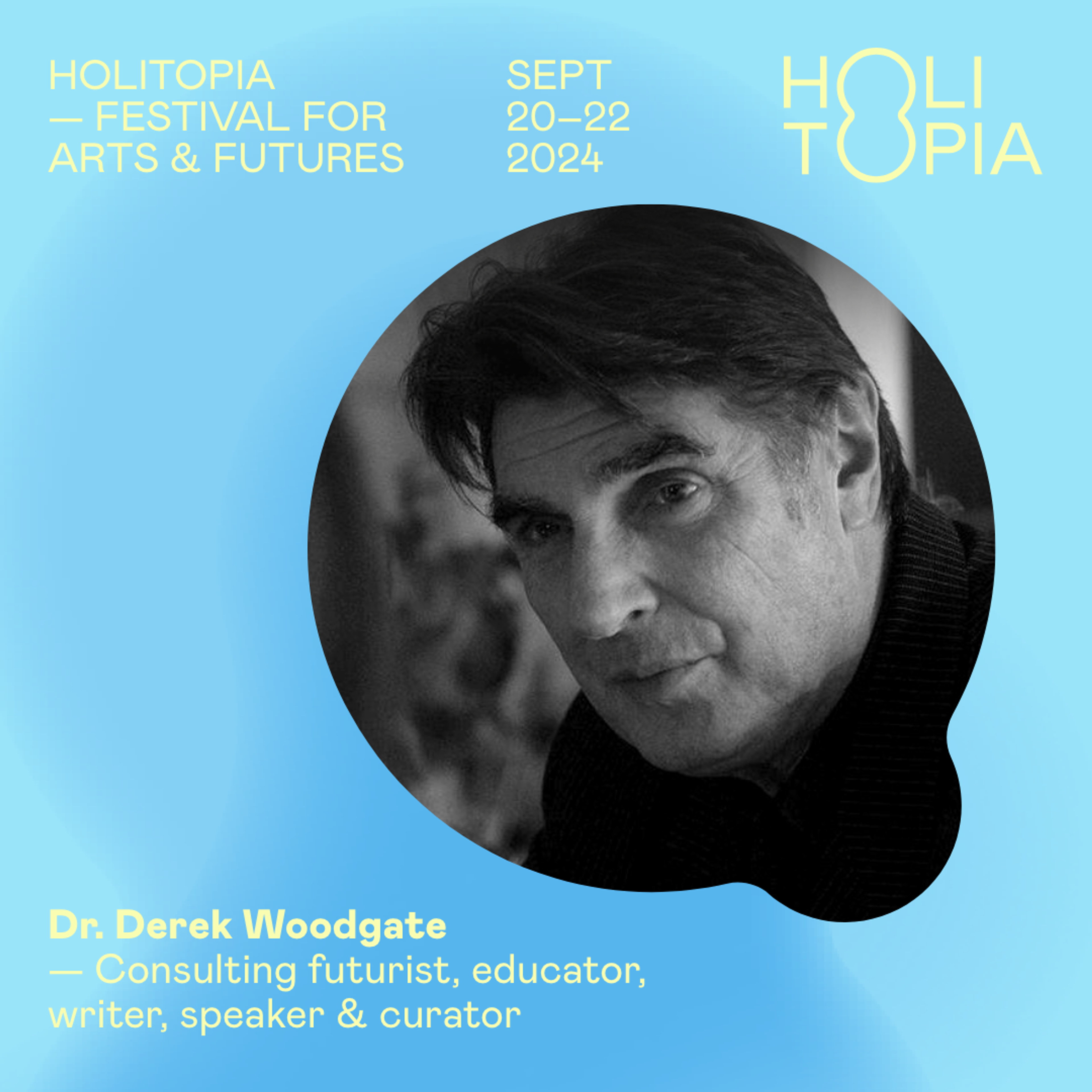Join the growing HOLITOPIA community → Sign up for our Newsletter
Join the growing HOLITOPIA community → Sign up for our Newsletter
Join the growing HOLITOPIA community → Sign up for our Newsletter
Join the growing HOLITOPIA community → Sign up for our Newsletter
Join the growing HOLITOPIA community → Sign up for our Newsletter
Join the growing HOLITOPIA community → Sign up for our Newsletter
Join the growing HOLITOPIA community
→ Sign up for our Newsletter
Festival for
Arts & Futures
Dimitra Almpani-Lekka is an architect (Dipl. Arch. Eng.) who graduated from the Aristotle University of Thessaloniki. She has been working in landscape architecture for the last few years, focusing on public space. She is a member of the Berlin-based SciArt Collective MY-CO-X, which experiments with the use of mycelium-based composite materials in the architectural context. She explores architectural structures as potentially active, integrated parts of the environment’s metabolic processes. She is interested in water transformations through the built environment with the aim of promoting multispecies symbioses. For the above, she investigates different species and colonies of the microcosm and the mechanisms that define their unique functions and properties. Dimitra Almpani-Lekka is currently a PhD candidate at the Architecture Department of the University of Ioannina in Greece.
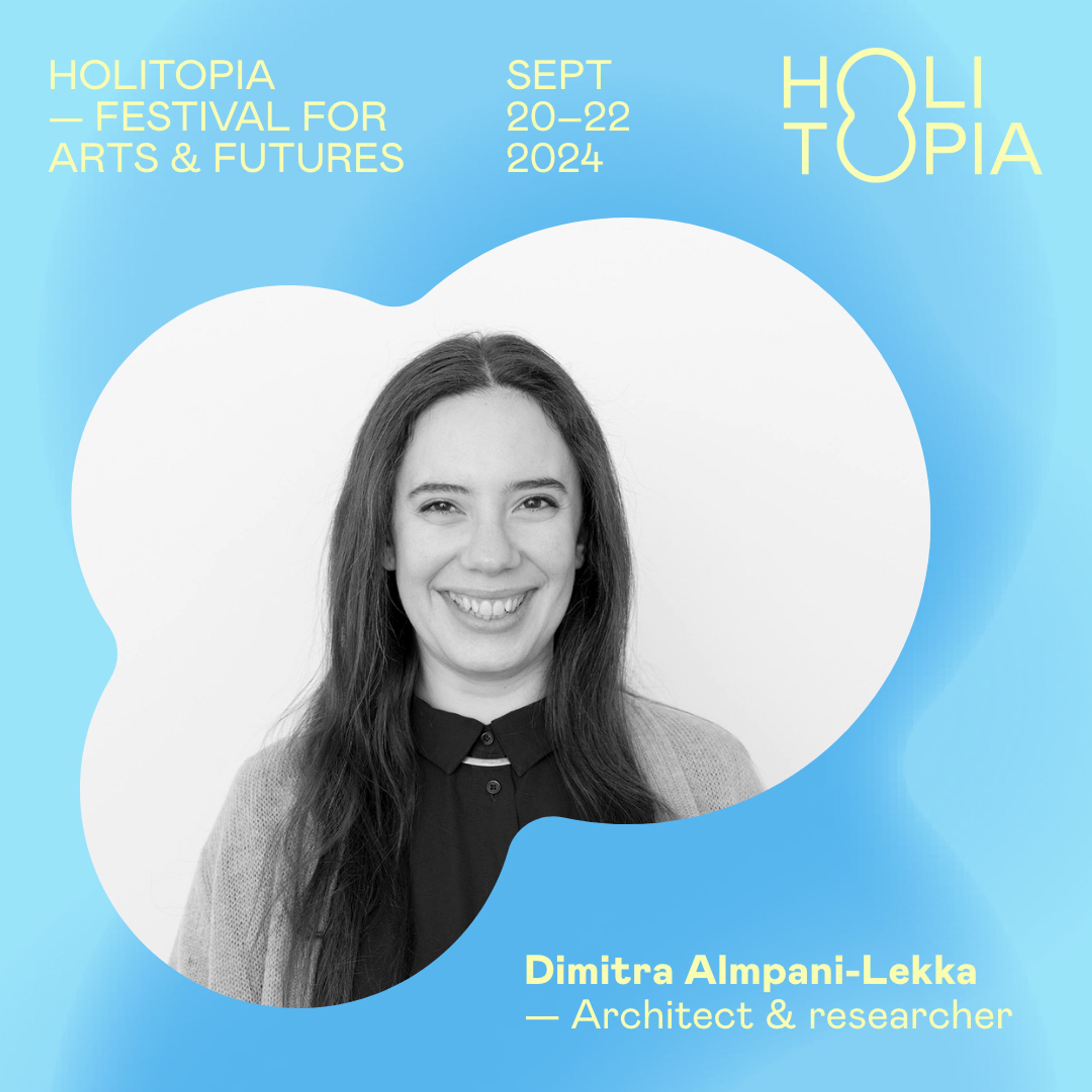
Konstanin Bayer sees his work as an artist, curator and artistic director of the EIGENHEIM Weimar/Berlin as a unity of artistic practice. As an artist, he deals with the topics of environmental awareness, economic processes, and social upheaval. As a curator, he embeds these and other themes in in-depth contexts, and as artistic director, he develops an environment of collective practice. The media Konstantin Bayer employs are correspondingly diverse. Objects, installations, photography, film and performance, or environments, participatory spatial installations and internet projects. A wide
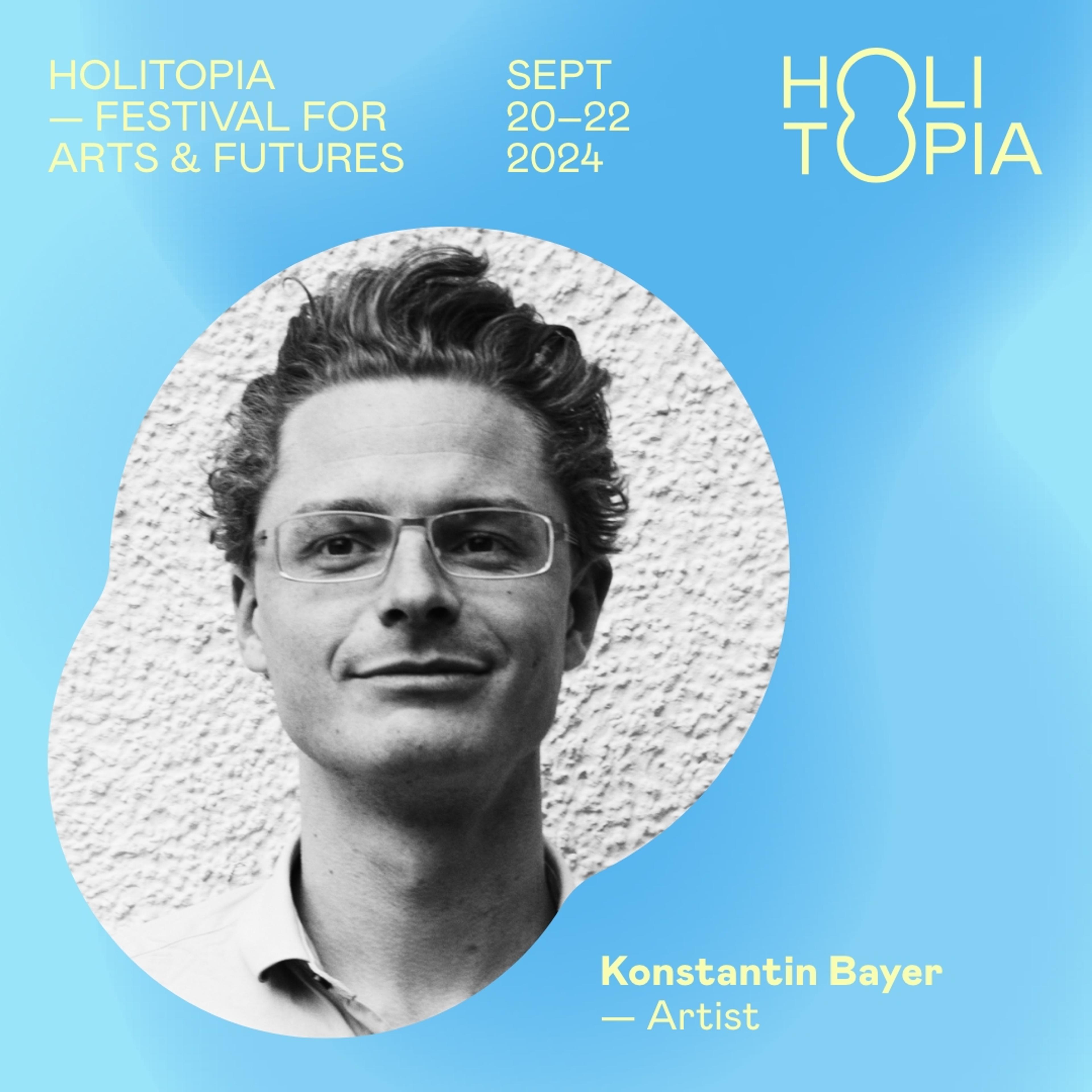
The artist Marlene Bart lives and works in Berlin. Her practice is situated at the intersection of natural history, anatomy and visual art. Bart is also a researcher and futurist who envisions the possibilities of how a common visual language in art and science could be used to address holistic issues such as the meaning of ordering systems. The diverse use of multimedia techniques (printmaking, artist books, sculptures, taxidermy, installations, VR & AR) allows her to playfully integrate a wide range of visual content, referencing the historical dimension of scientific publications, which she firmly places in a contemporary context. This approach illustrates Bart's interest in the interplay between technology and technoimagination.
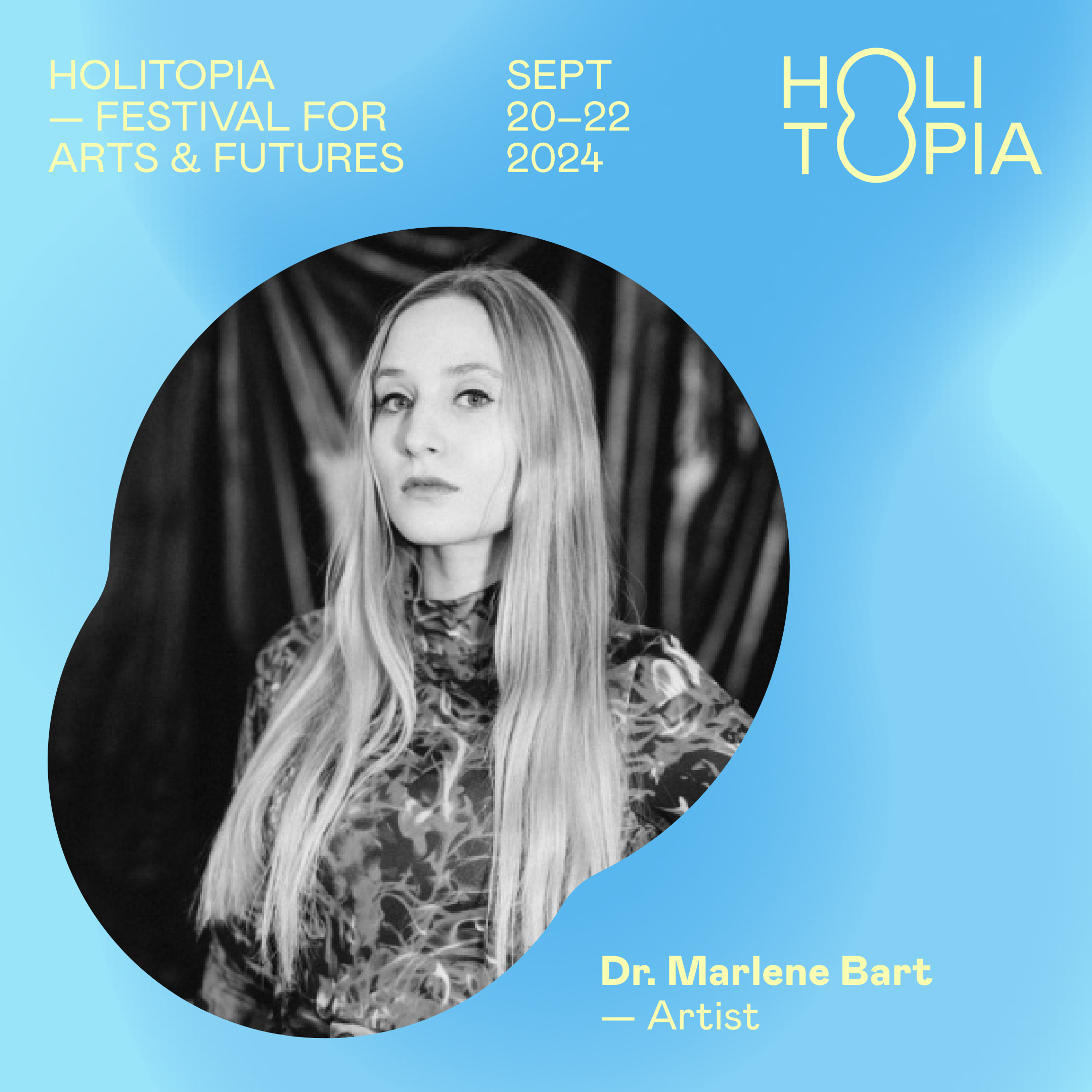
Pelin Celik is a professor in the Industrial Design and System Design master programme at the HTW Berlin University of Applied Sciences. Prior to her appointment at HTW Berlin, she was a professor at the Ulm School of Communication and Design and a visiting professor at Burg Giebichenstein University of Art and Design in Halle. As an industrial designer in renowned offices, she has received numerous international awards for her work. Her scientific focus is on the holistic and systemic view of the user experience, as well as experimental processes in design. She is also deputy chair of the board of the International Design Centre Berlin.
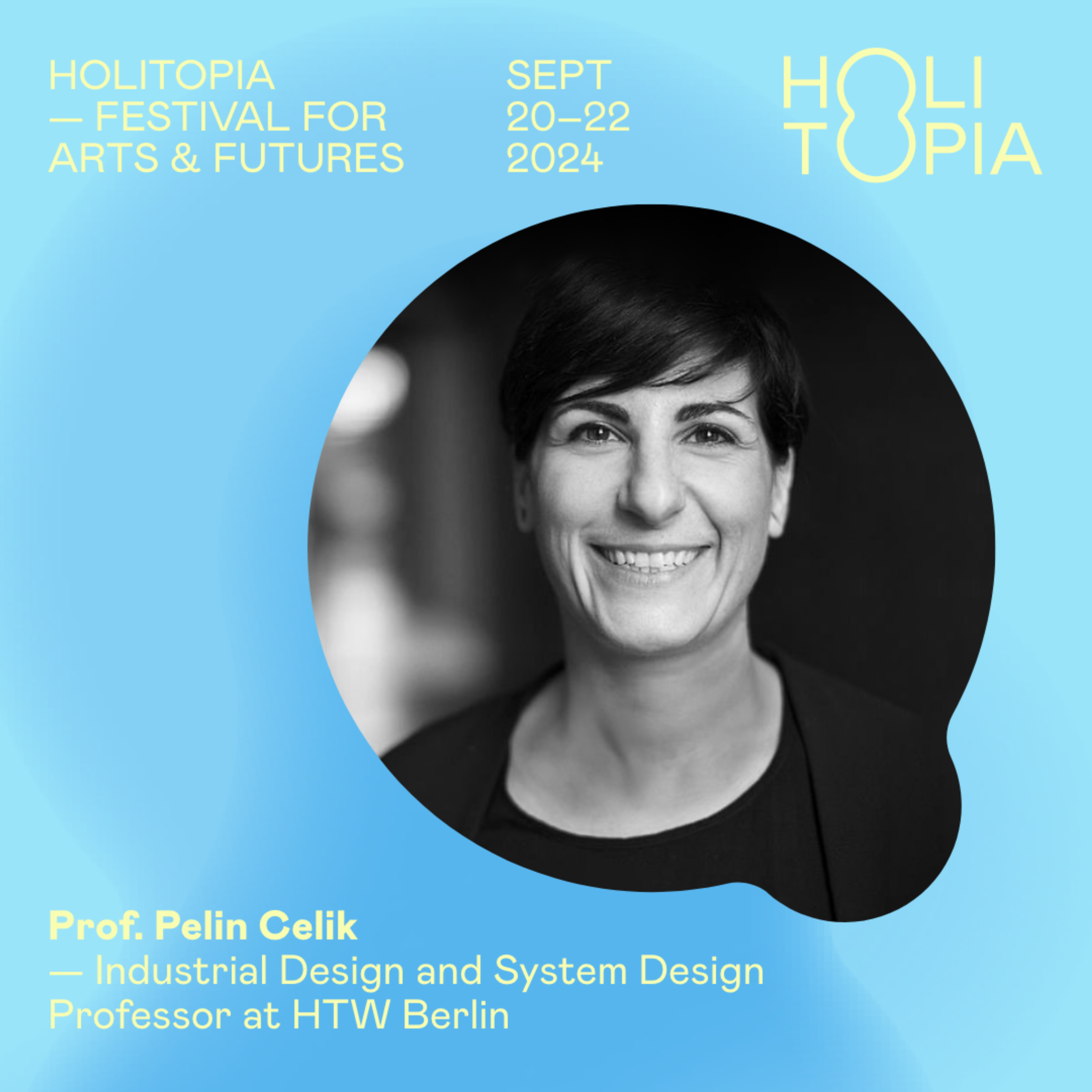
Abie was born in Jerusalem, and raised in Tel Aviv where he graduated from Thelma Yellin High School with the highest honours in the visual arts department, he moved to Berlin in 2015. After finishing school he decided to decline the obligatory military service and worked in a children’s home instead. He’s made Berlin his home since 2015. His postgraduate diploma in Fine Arts from Kunsthochschule Berlin Weißensee (2016-2022) laid the foundation for his exploration of space, identity, and materiality. Assisting Professor Nader Ahriman’s class (2020-2022) deepened his understanding of colonial legacies within spatial constructs.
In 2022, Abie co-founded the “Solitudo Residency” in Croatia, fostering artistic collaboration and dialogue. Abie’s practice involves looking at archetypes of spatial relations as representations of power dynamics and narratives of conflict and desire. Wherein his main focus is the materiality of borders.
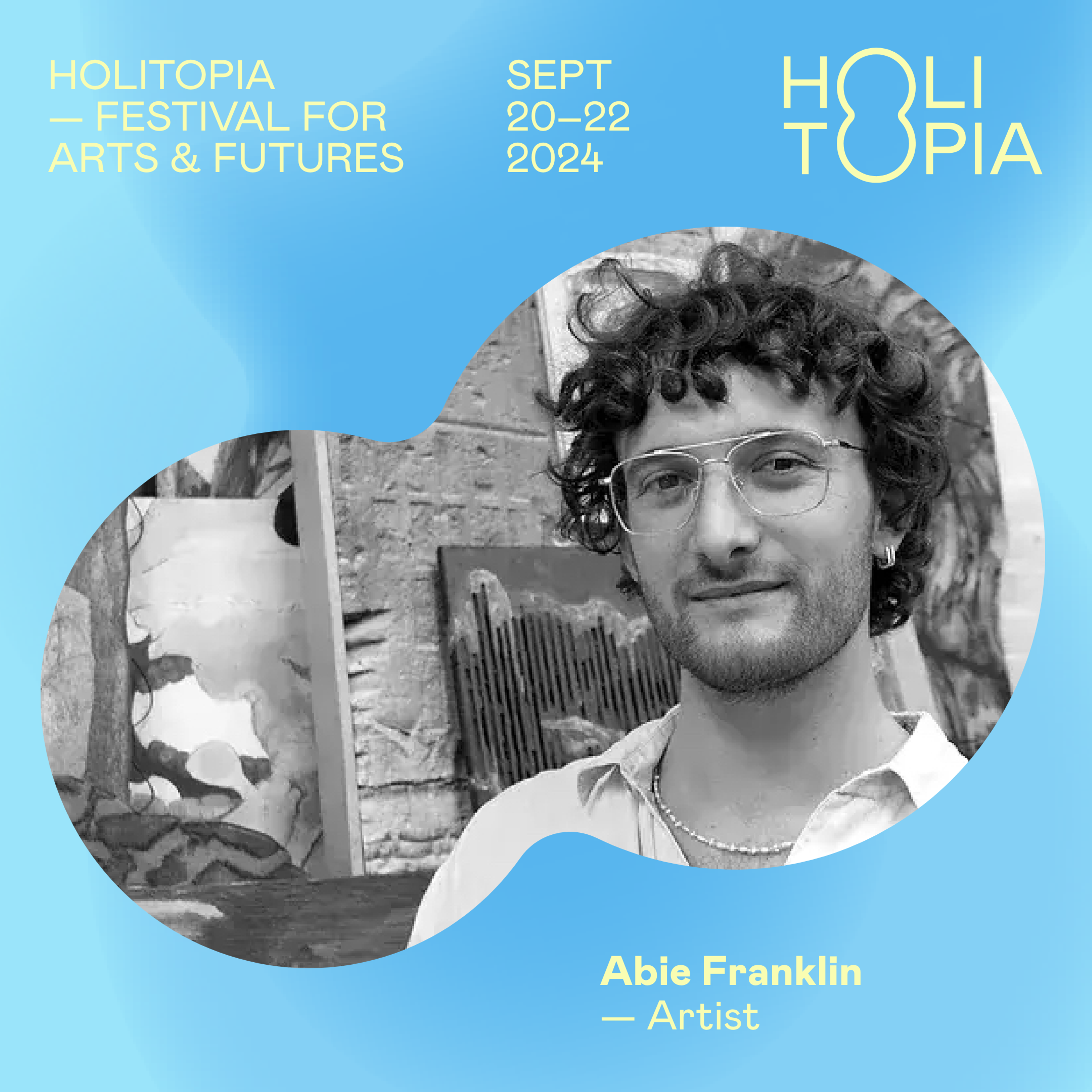
A curator, writer, tutor, expert for drawing Jan-Philipp Fruesorge studied theater and film, history, English literature and art history at Freie Universität Berlin. Prior to running a contemporary art gallery for over 12 years in Berlin he worked as an art critic. Today he teaches art history at the Paris College of art, curating internationally and writing about contemporary drawing. His most recent exhibition was for the Biennale of drawing in Rimini, Italy 2024.
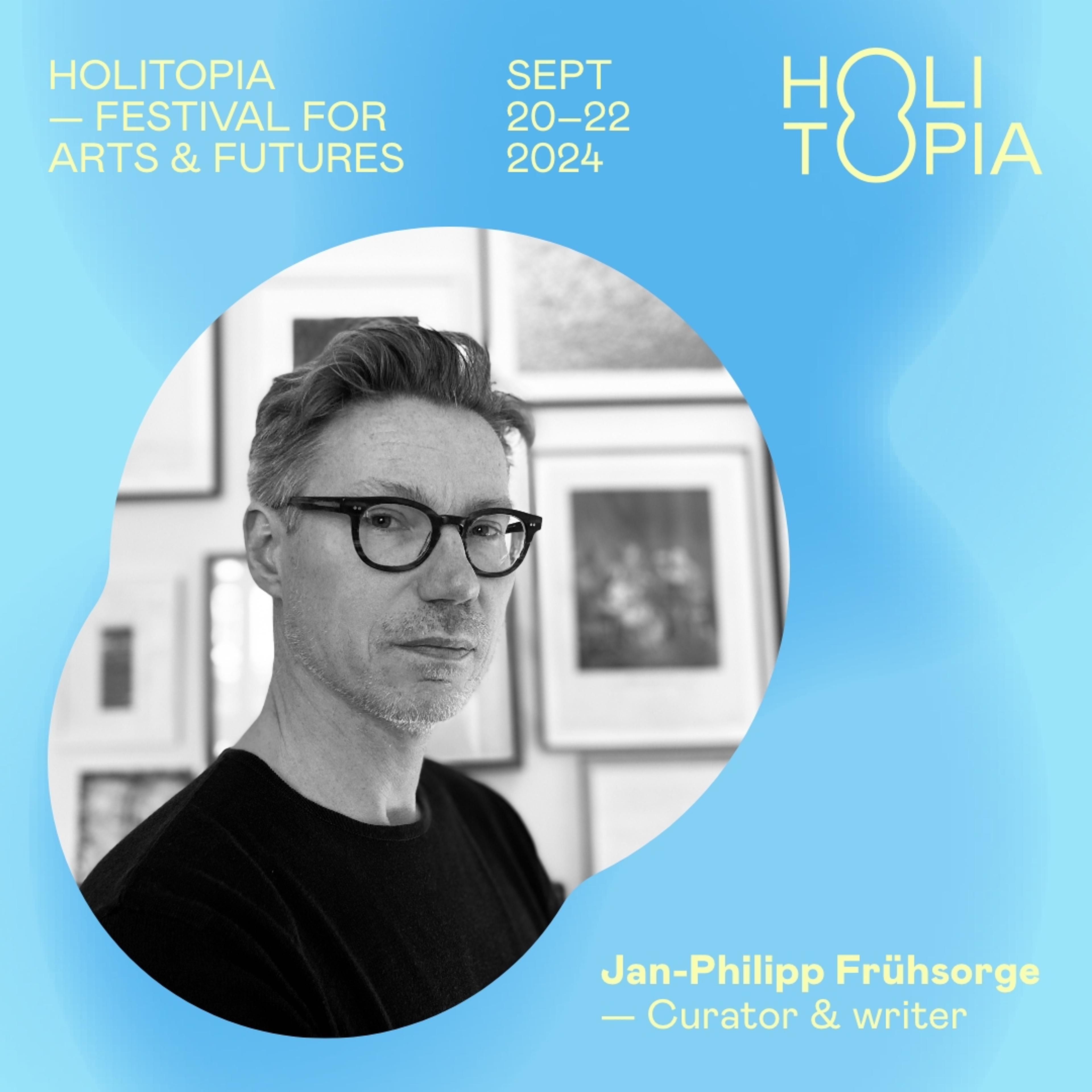
Lynn Harles advocates the potentials of Design Research for Climate Action in a more than human world, while rethinking Natural History Museums as Innovation Labs through Design Research. Within the realm of Responsible Research and Innovation for socio-ecological challenges, she is currently pushing the boundaries of a human-centered understanding of public engagement, while developing a methodological framework of Multispecies Engagement. Derived from the theoretical foundations of Multispecies Studies at the intersection of anthropology and environmental studies, she explores the practical potentials of Multispecies Design to discuss legal rights for nature in urban habitats.
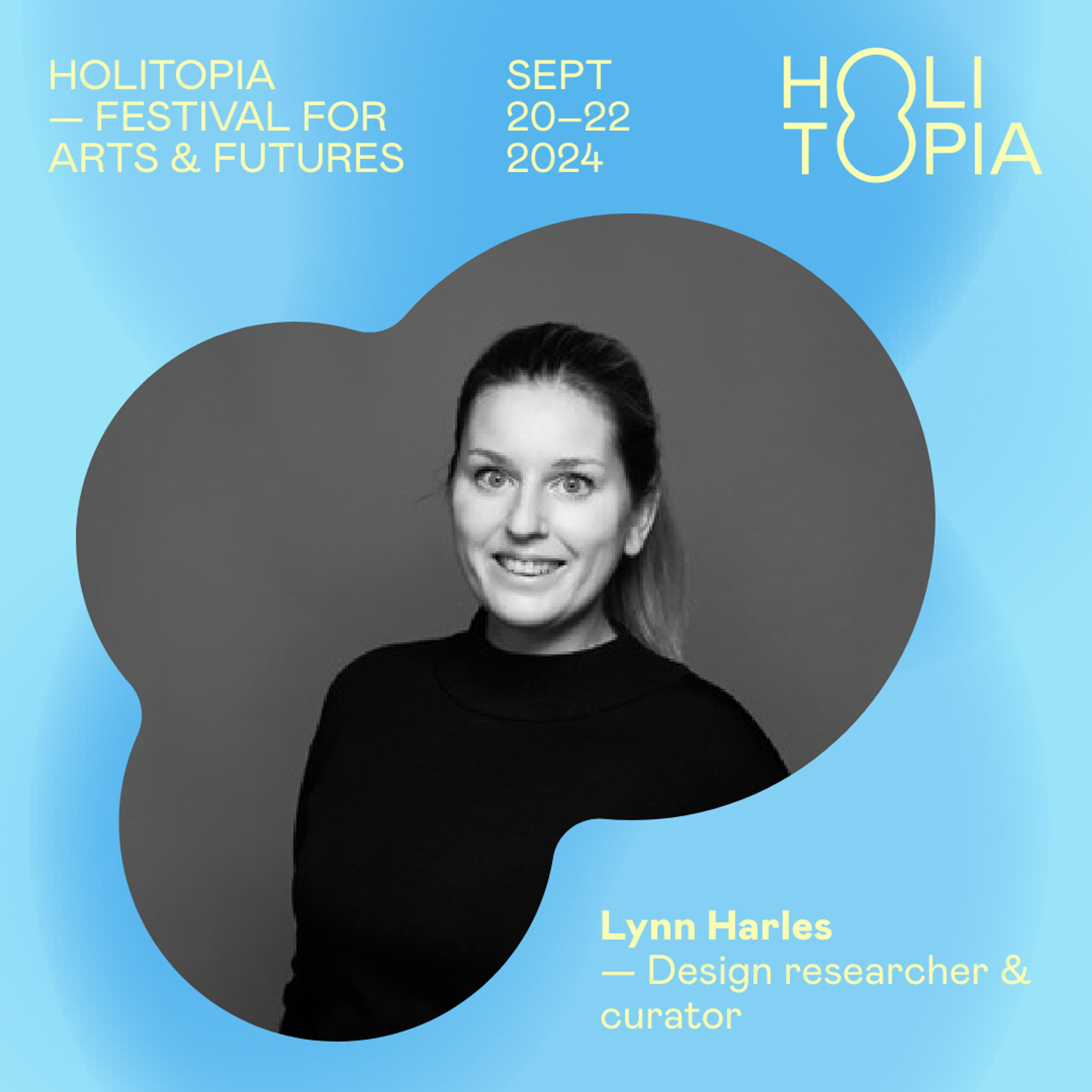
The artist Andreas Greiner lives and works in Berlin, Germany. After studying medicine, anatomy, and art in the Institute for Spatial Experiments (Institut für Raumexperimente), Greiner has devised a practice that encompasses time-based, living and digital sculptures, photographs, and video, with a concentration on the influence of anthropogenic interventions on the form and evolution of “nature.” Incorporating artificial intelligence, living organisms such as algae, flies, and chickens, genetically modified cells, and at-risk ecosystems, Greiner’s art effects a shift of perspective in which the classical divisions between nature and culture, between human and non-human are undone. Not unlike setups for scientific experiments, his works examine man’s impact on the biological and atmospheric processes of our planet. Greiner has exhibited his work at the Mönchehaus Museum Goslar as the 34th recipient of the Kaiserring emerging-artist award, and Berlinische Galerie, Kunsthalle Mannheim, Hamburger Kunsthalle, Centre Pompidou, among many others
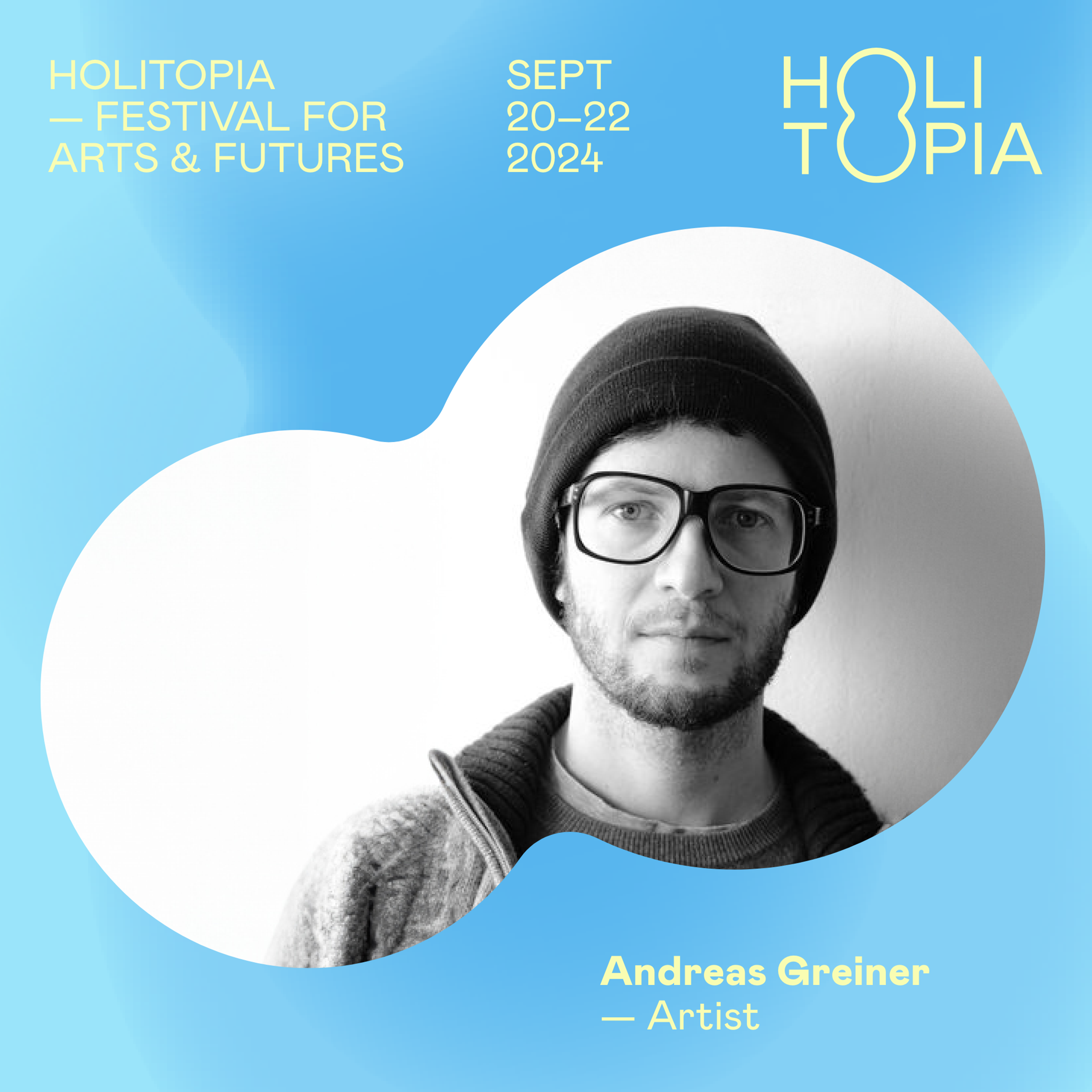
Elisabeth is a trained cellist and cultural scientist, long-time Design Thinking coach at HPI Potsdam and holds a PhD in innovation management and artistic thinking. For 15 years she has focused on the topic of Future of Work, which she has driven forward in companies such as Zalando SE or as a consultant at PwC. Now she is responsible for innovation and strategic business transformation at the Berlin-based furniture manufacturer System 180. Here, she combines user-centered thinking, strategic business design, industry knowledge in the field of Future of Work and artistic creative processes to exploit the full potential of System 180's modular and scalable products in the context of its circular economy-oriented business strategy.
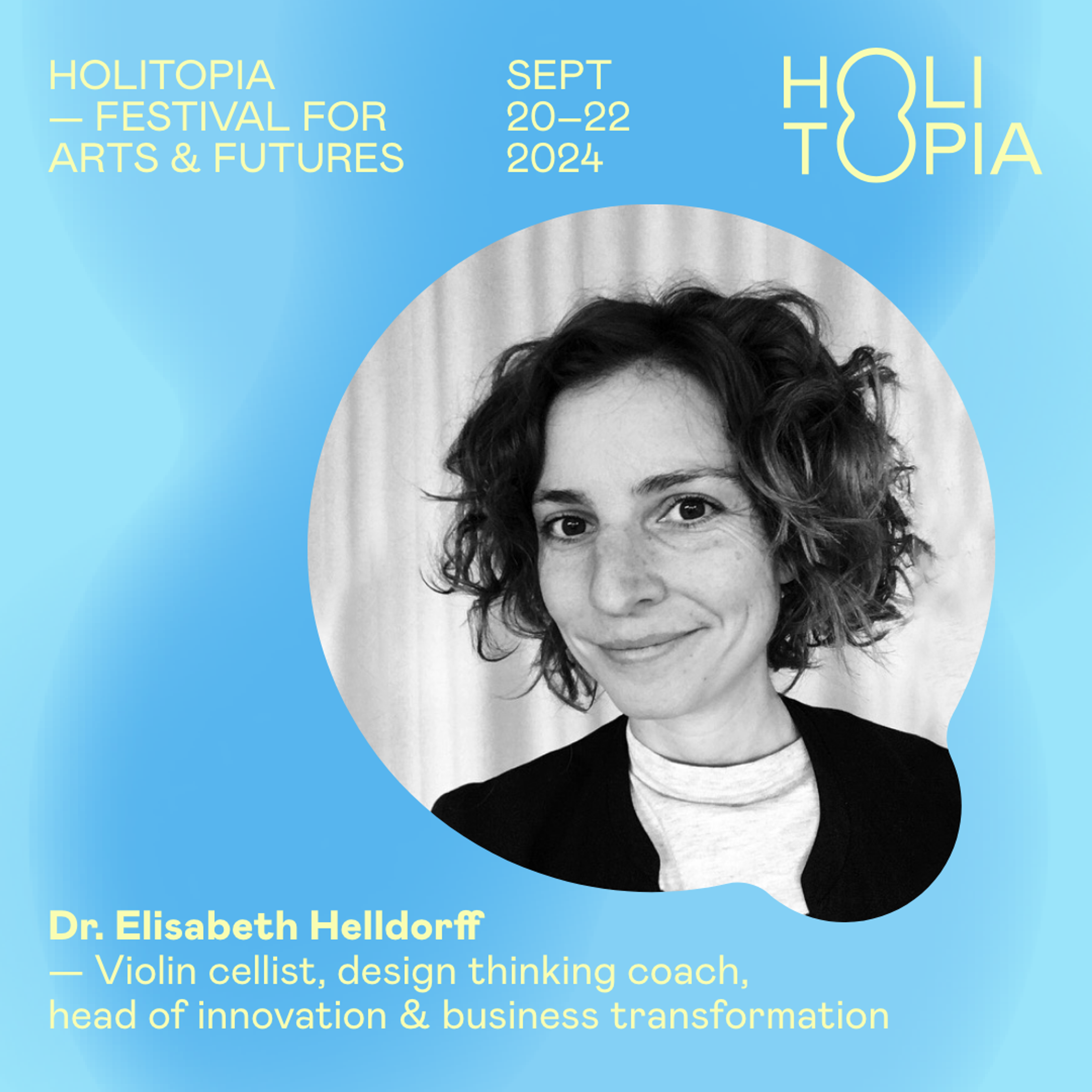
The artist Daniel Hölzl creates site-specifc installations that contain an element of constant change. A recurring theme in his work is what he sees as the “cyclical nature” underlying everything. Carefully selected materials direct the focus to the transience of every moment which connects the installation to the room and its visitors. After having graduated at the Weißensee Academy of Art, Daniel Hölzl lives and works in Berlin.
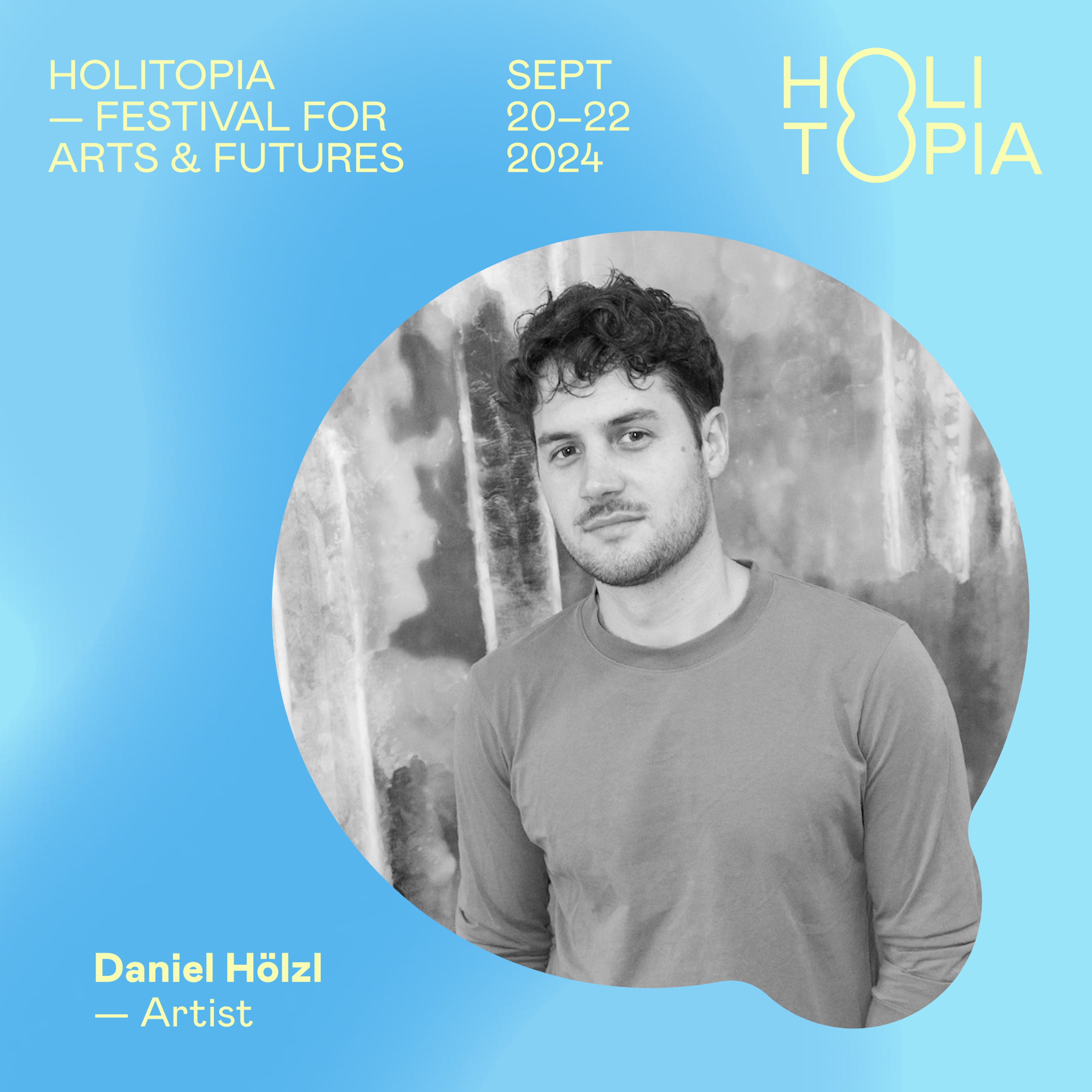
kennedy + swan comprises the work of the two artists Bianca Kennedy and Swan Collective. When working together, they explore the future of non-human intelligence and its impact on plants, animals, machines, and humans. These utopias are liberated from human supremacy, illuminating the ecological benefits of hybrid life forms, and addressing the twisted relationship between humans and biotechnology. For their videos, VR, and AR installations, the duo employs a variety of animation techniques: drawings, stereoscopic film footage, 3D-scanned landscapes, and self-built characters create a dense network of analog and digital imagery. Recent works reflect upon the exponential rise of Artificial Intelligence and its impact on biology. kennedy+swan exhibit internationally in galleries, museums, and festivals. Exhibitions include the Lyon Biennial, Gropius Bau Berlin, Kunstmuseum Stuttgart, Museum der bildenden Künste Leipzig, Bärenzwinger Berlin, CCBB Rio de Janeiro, Loop Discover Award and Sundance Film Festival. They live in Berlin.
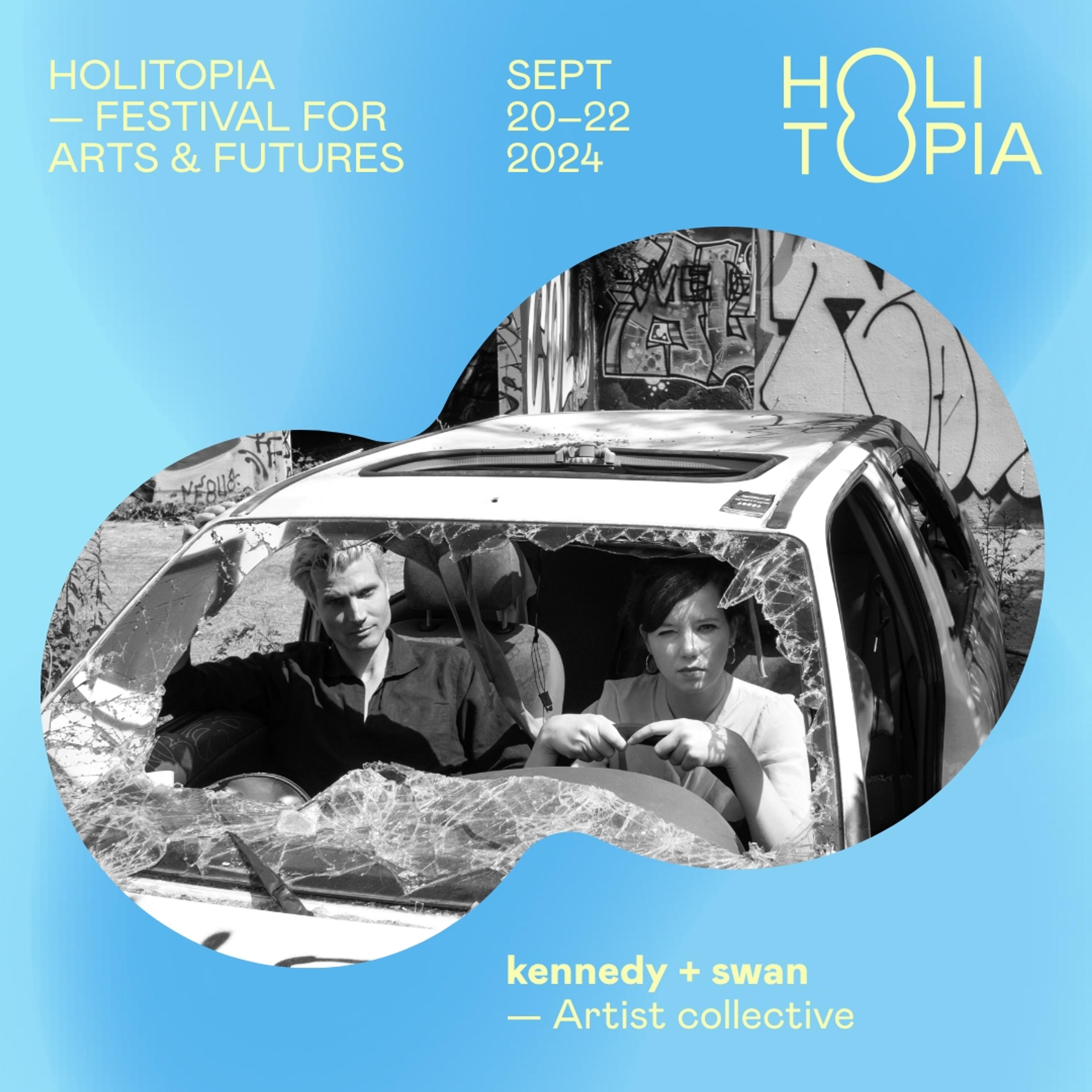
Dana Klisanin is passionate for integrating psychology, the arts, and environmental engagement to foster holistic health and wellness for people and the planet. Her interdisciplinary research has explored the rewilding of human imagination, the antifragile mindset, digital altruism, social impact media design, and collaborative heroism. Widely published in books and peer-reviewed journals and featured in major media outlets such as Time, BBC, and Forbes, where she was recognized as one of the top 50 female futurists.
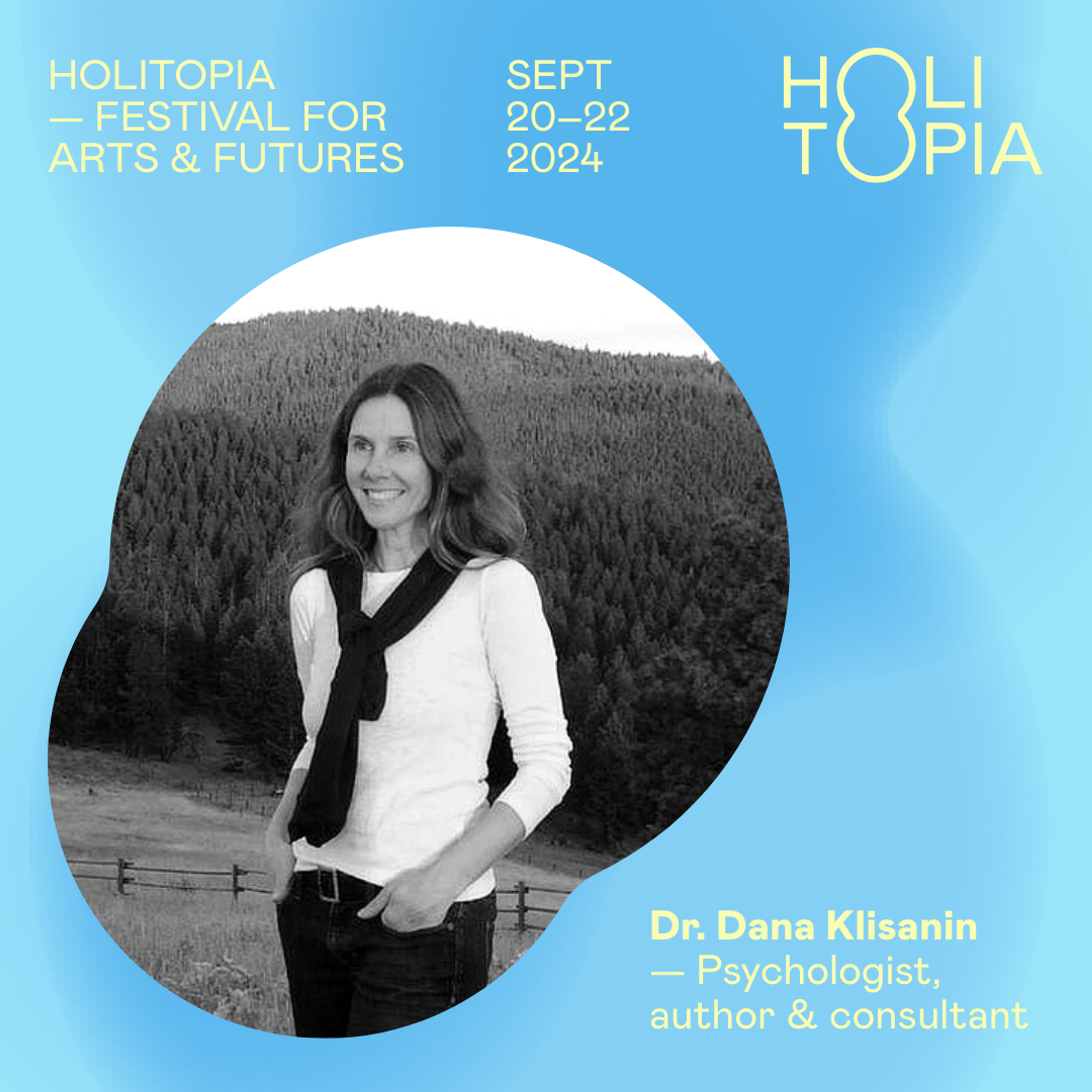
Felix Kosok completed his doctorate in 2020 at the HfG Offenbach on the aesthetic-political dimension of design under Prof. Dr Juliane Rebentisch. His research focuses on design aesthetics and political graphic design. In addition to research, he is a designer with the design collaboration Bureau069. He has already received many awards for his work. Felix Kosok has been a Graphic Design and Design Theory professor at the German International University Berlin since 2021. Since 2024 he is the director of the design discourse for World Design Capital Frankfurt RheinMain 2026 under the motto of "Design for Democracy". Felix Kosok was a member of the board of the German Designer Club (DDC), a member of the German Society for Design Theory and Research (dgtf) and the German Society for Aesthetics (dgä). Since 2019, he has been on the Offenbach Art Association Mañana Bold board.
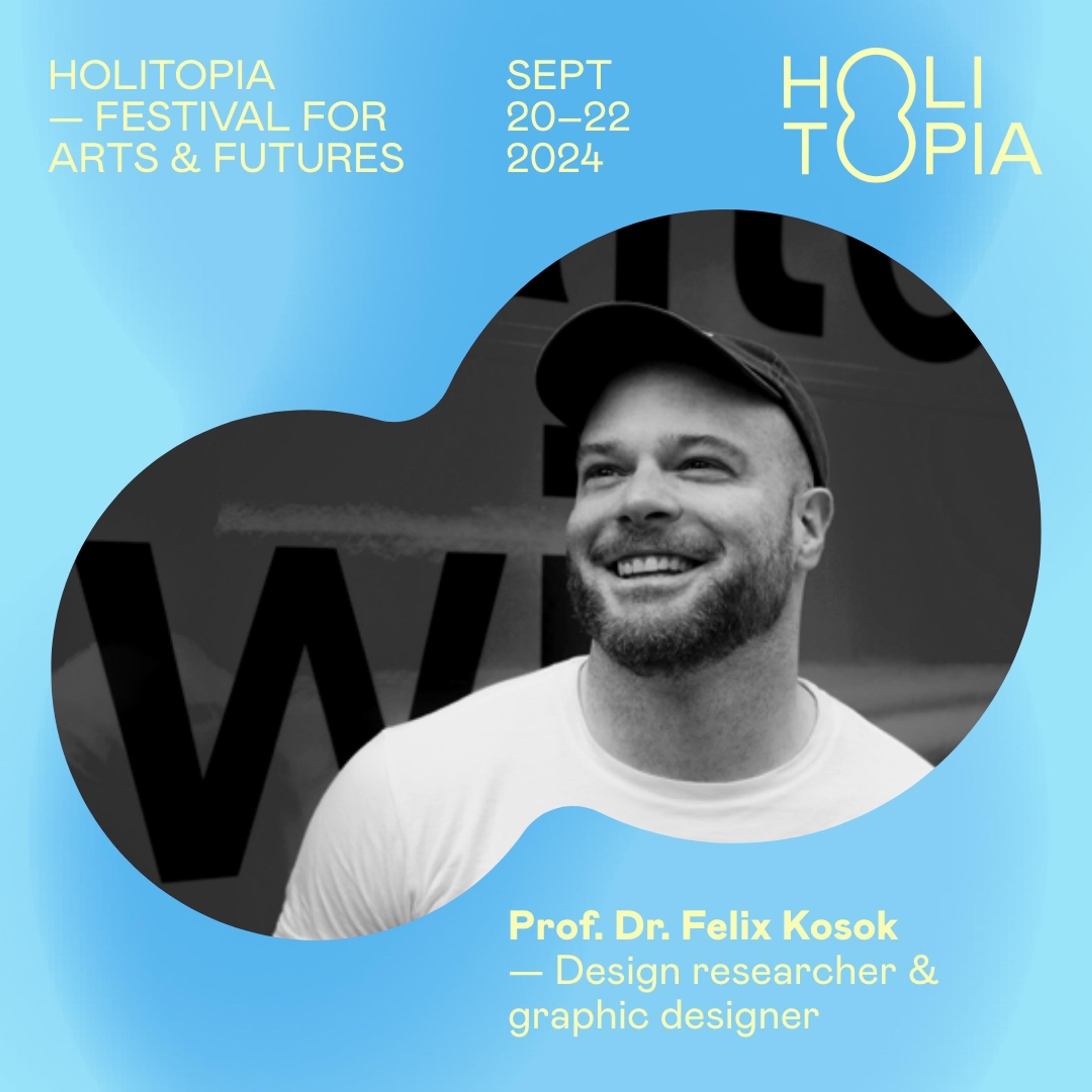
Originally from France, Aude Langlois is a sound designer and sound artist based in Berlin for the last decade. She is a graduate of “Sound Studies” at the University of Arts in Berlin and of “Music and Musicology” at Paris-Sorbonne. You can hear her work in films, documentaries and music releases. With electronic hardware, field recordings, and self made recordings of her voice and acoustic instruments, she creates sound textures with depths. Her interests lays in the connection of memory, technical crafting and the materiality of sound. She also performs improvised live shows within the duet EKHEO together with Belinda Sykora, exploring the relationship of the human voice, voice modulation, AI and ethics on a sonic level. Furthermore they create sound for theatre and performances across France, Germany and Austria. She is currently part of the faculty of "Sound Studies and Sonic Arts" at the University of Arts in Berlin.
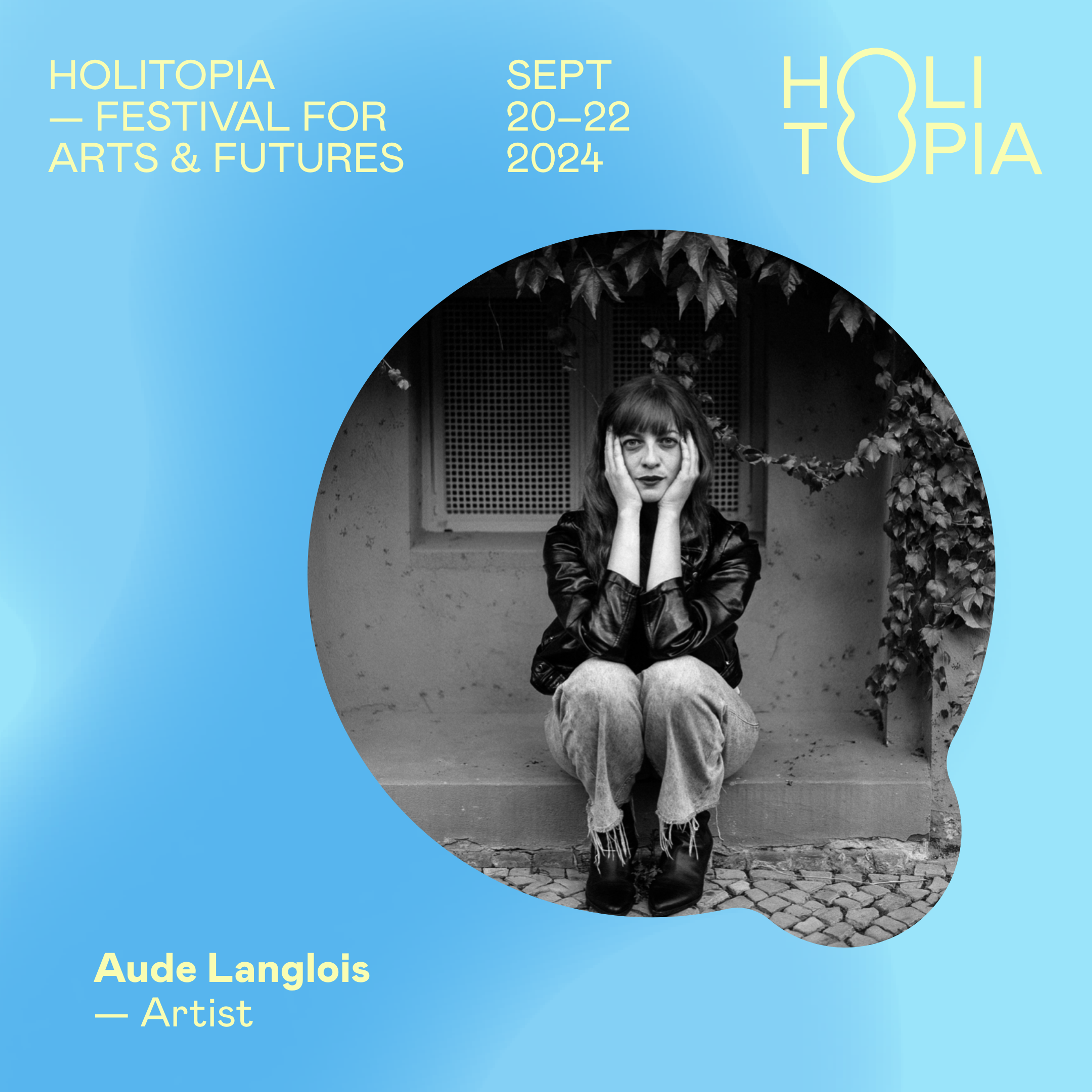
Nicole Loeser is an independent art curator and serial cultural entrepreneur with over 20 years of experience in cross-sectoral collaboration. She integrates artistic and scientific research with social innovation theory and practice to foster transformative innovation. Since 2017, she has served as the Director of the Institute for Art and Innovation (IFAI) in Berlin and is pursuing a PhD at Film University Babelsberg, focusing on Social Art for Transformation.
In 2020, Nicole co-founded the Art for Futures Lab (AFFL), an interdisciplinary lab recognized with the German Award for Sustainability Projects in 2024. The AFFL explores new media formats to transmit sustainable and regenerative future narratives, employing innovative methodologies like speculative design, futures literacy, and data storytelling to create immersive experiences that challenge conventional thinking about the future.
Nicole was the EU project lead of The Universal Sea (2017–2019) and initiated the Ocean Future Lab in 2022, both dedicated to fostering sustainable relationships with oceans and waterways. These initiatives unite artists, scientists, and civil society to co-create solutions and pathways addressing pressing environmental challenges affecting marine ecosystems.
As an author, speaker, and workshop facilitator, Nicole focuses on sustainability and positive future-scenario building. She teaches Social Design, Digital Transformation, and System Innovation at SRH Berlin University and other institutions.
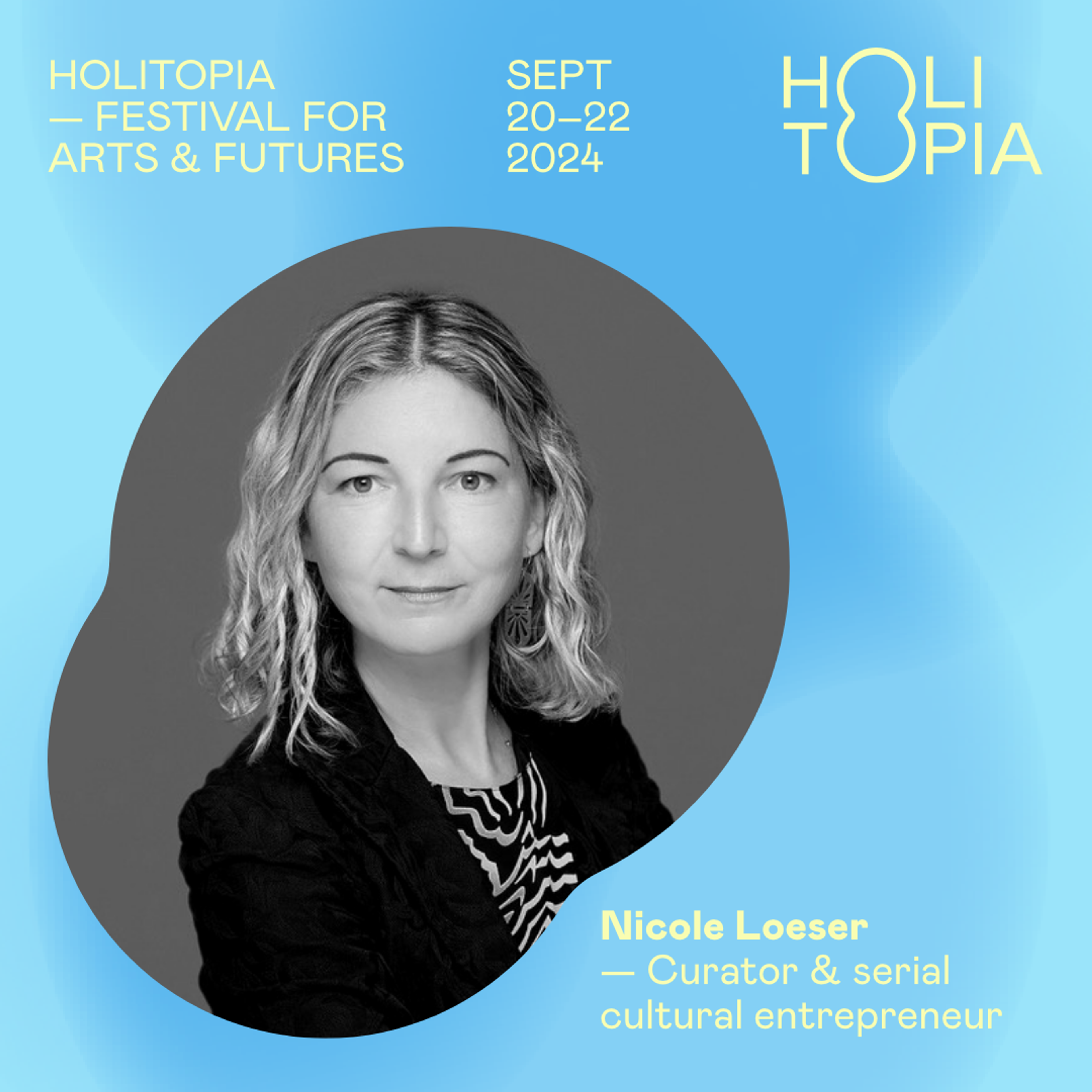
Maximilian Mauracher works as a designer, strategist and consultant with a strong mission to change the way companies and people think about growth, waste, design and advertising. To this end, he founded the Berlin studio NEW STANDARD.S in 2020, which combines sustainability consulting and communication agency under one roof and works with companies, NGOs and the public sector on future topics. He is a member of Circular City e.V., PLAN Berlin 2030 e.V. and Deutscher Designer Club e.V., where he focuses on content relating to the circular economy, degrowth and the implementation of socio-ecological transformation from civil society.
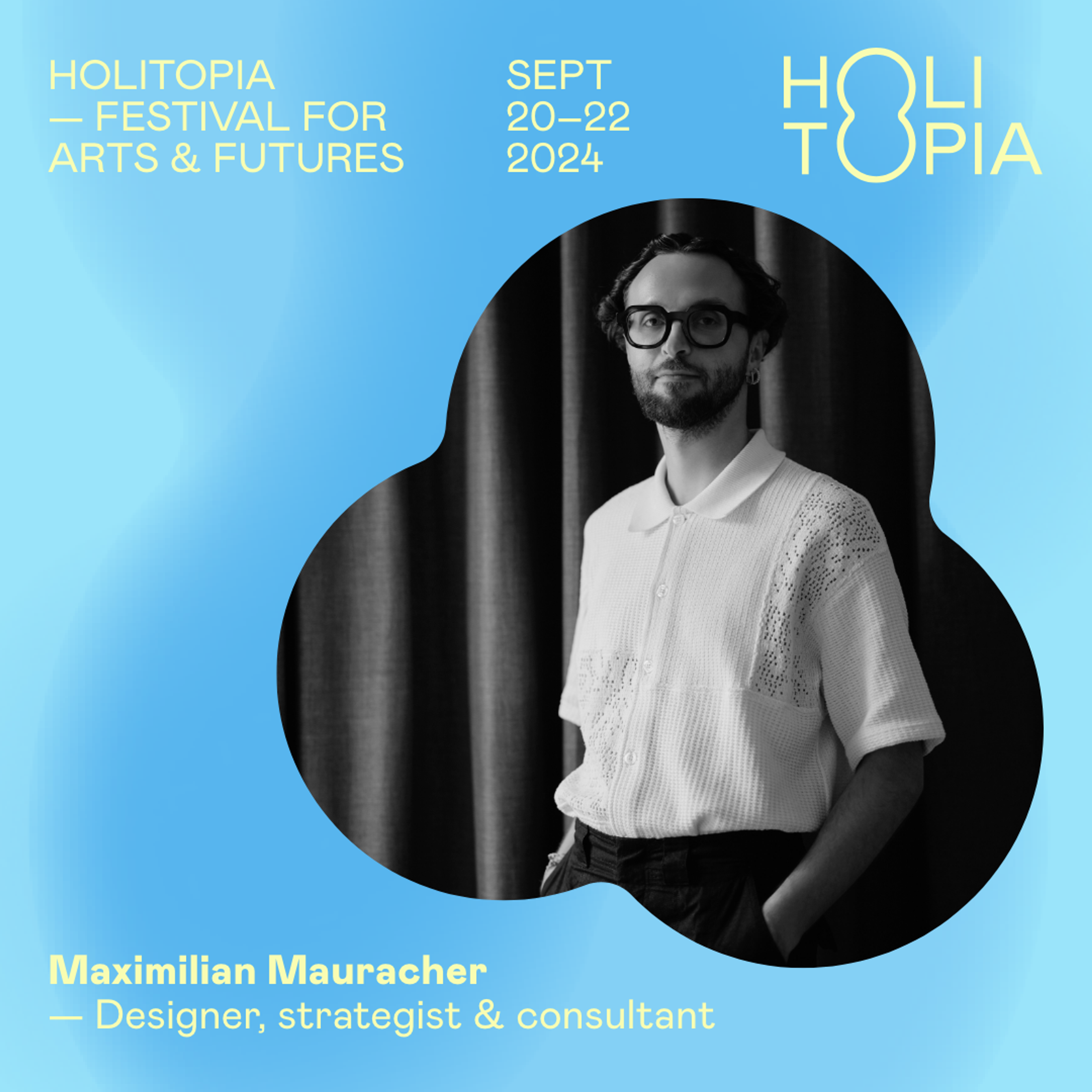
Caroline McMillan is an award-winning design researcher, scent expert and entrepreneur. Her work has been featured in CTM Festival Berlin, BR41N.io at Ars Electronica, Deutsche Telekom Fashion Fusion and published in the Association for Computing Machinery (ACM). She has been a professional designer for over two decades for clients including Tubi, Amplify, Soho House, WGSN London, H&M and Zalando. She’s studied the art of haute couture techniques in the métiers of Paris. She now helps organizations to produce multisensory experiences and projects at the intersection of design and science. Her podcast, 'Sensuous Peripheries', explores the aesthetics of technology and society and brings together guests of multidisciplinary perspectives.
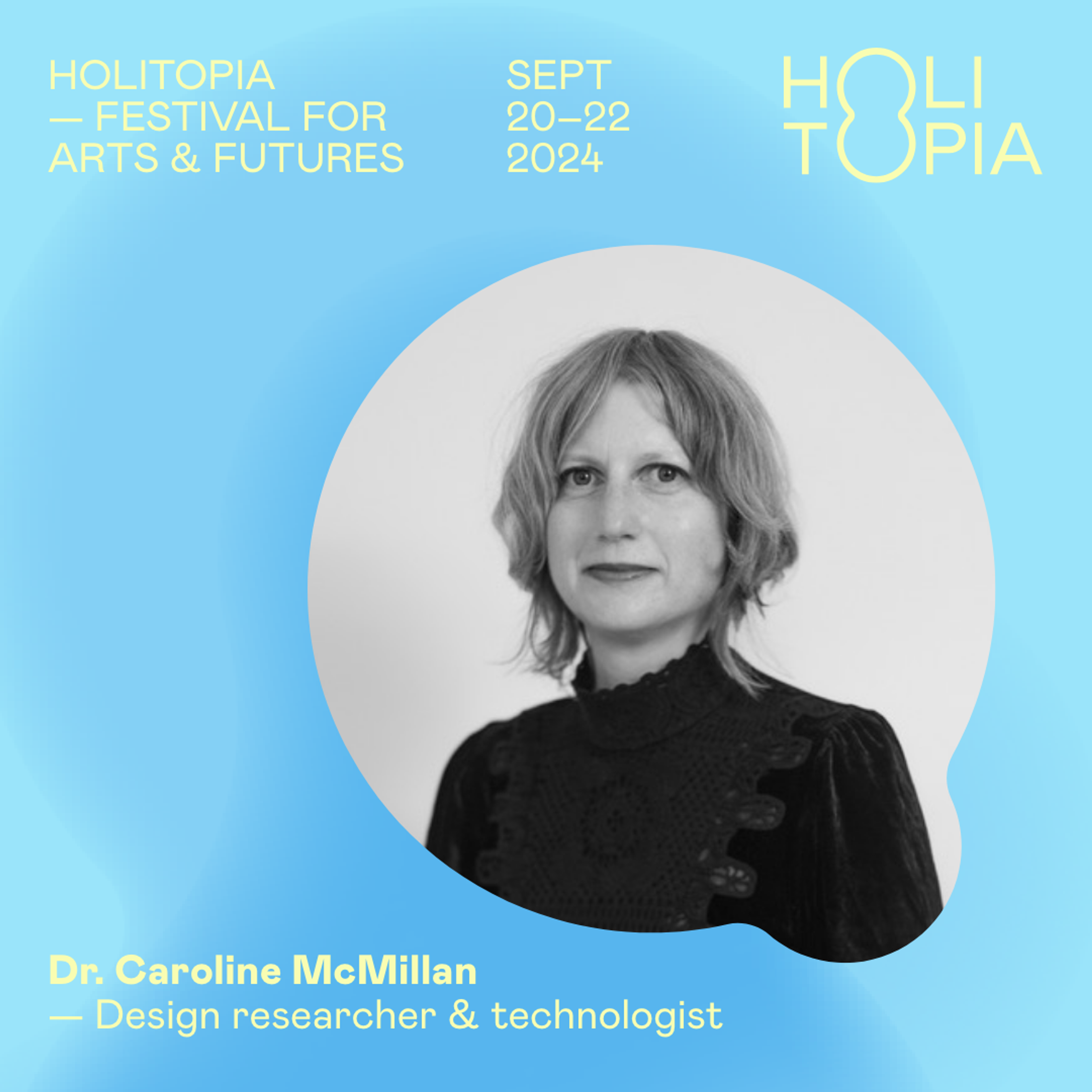
The Starting point for the interdisciplinary and experimental work of Natalija Miodragović M.A. (SCI-ARCH) are art and space as vehicles for social change. She works in cooperation with artists, scientists and in the field of academic research. The focus of the work is perception and understanding of space, lightweight, flexible, unfoldable and textile structures. Research: 2016-2018 Foldable, Insulating Textiles in Architecture Prof. Lueling. Teaching: since 2014 Institute for Architecture based Art TU Braunschweig, 2018 weißensee school of art and design berlin. Author with dreidreidrei Organ for Zionskirche Berlin, Serbian Pavilion EXPO 2010 and since 2002–2015 with artist Tomas Saraceno, architect and co-author of a series of projects and exhibitions like Geodesic Solar Ballloon, Biospheres etc.
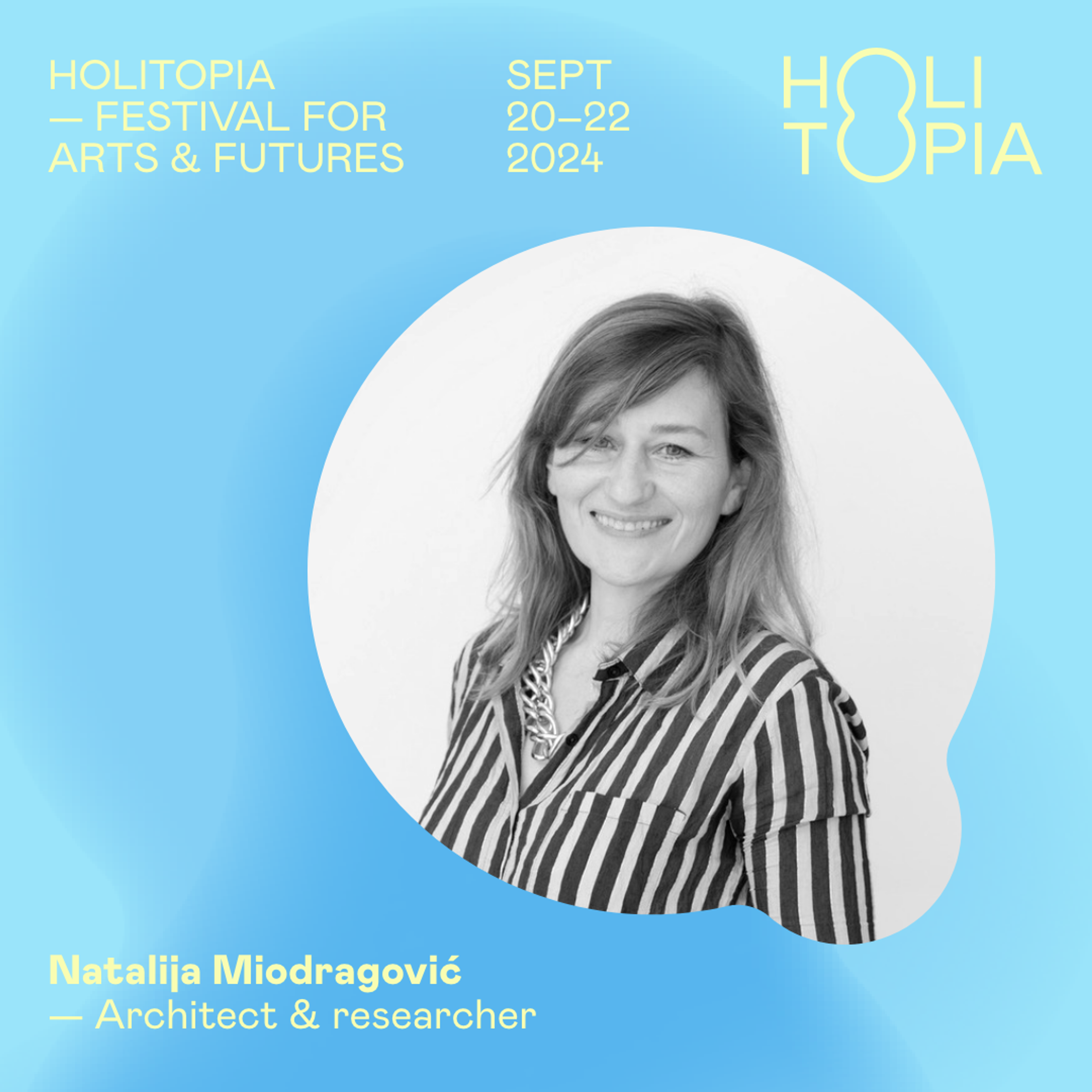
Philipp Modersohn's artistic practice examines the relationship between nature, art and society. He uses various materials, including sand and several recyclable materials, to produce sculptures and installations of original beauty and grace: objects for both indoor and outdoor spaces, characterised by references to land art, architecture and design. Modersohn questions the future of art making during the late Anthropocene with a contemporary twist on motifs from the baroque era.
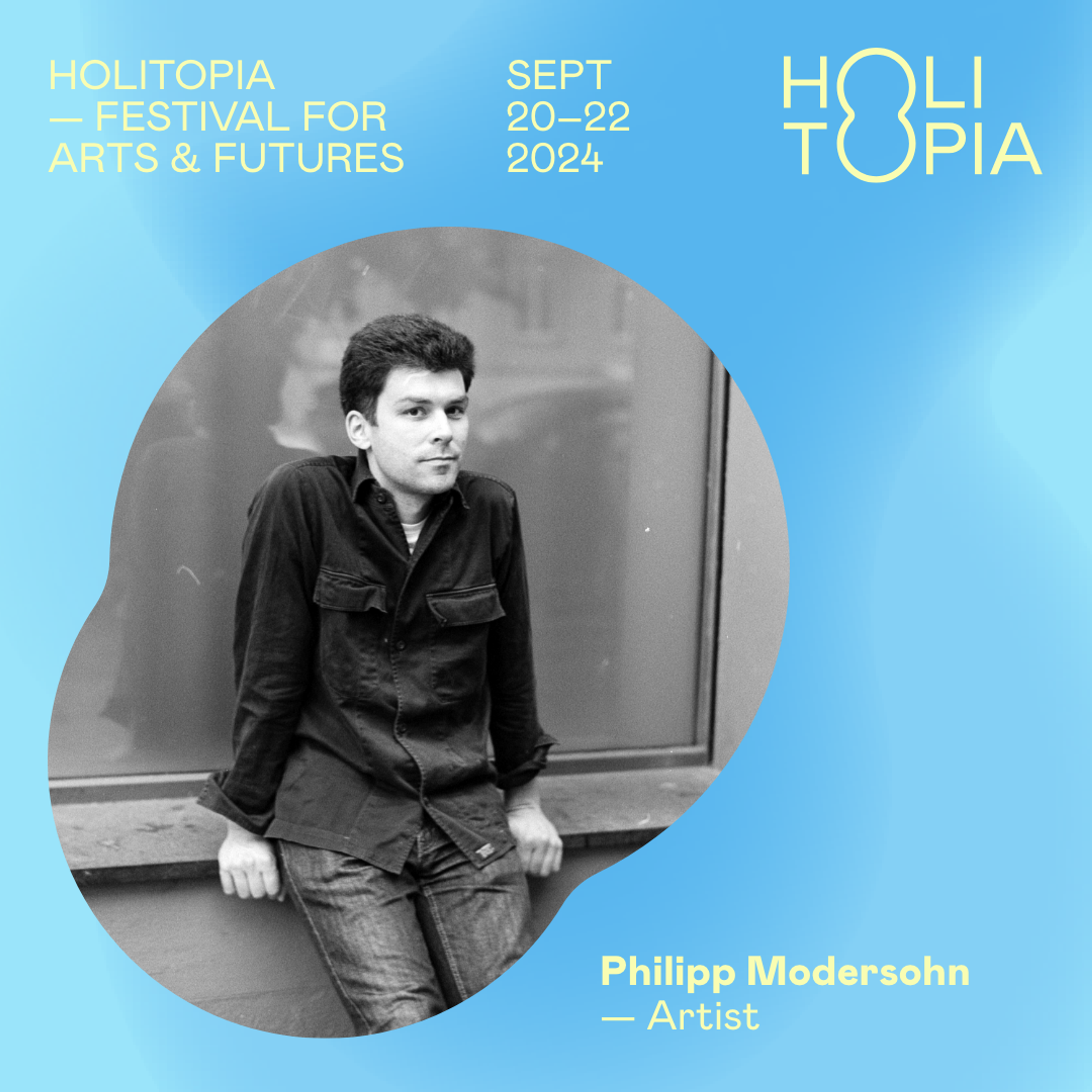
Ulrike Mohr is a visual artist based in Berlin. She works with the concept of drawing, space, time. Mohr’s artistic approach uses transformation processes of materials like charcoal, which are influenced by complex research results, traditional knowledge and coincidence. Through observations of nature and materiality, the works create their own material presence. Her position is the result of process-oriented handling of context-related materials, which Ulrike Mohr transforms into temporal dimensions, experiments and drawings in space. Over the past years, the burning of charcoal has become a central instrument in her work. Mohr’s work is characterized by revealing relationships between the present and the past, aesthetics and science. Mohr has won Kunst am Bau projects and is represented in numerous international solo and group exhibitions and biennials. She is the editor of the book series ANTHRAKOTHEK published by The Green Box Verlag in Berlin. Since 2015 she is curating and organizing the interdisciplinary, collaborative project WECHSELRAUM.
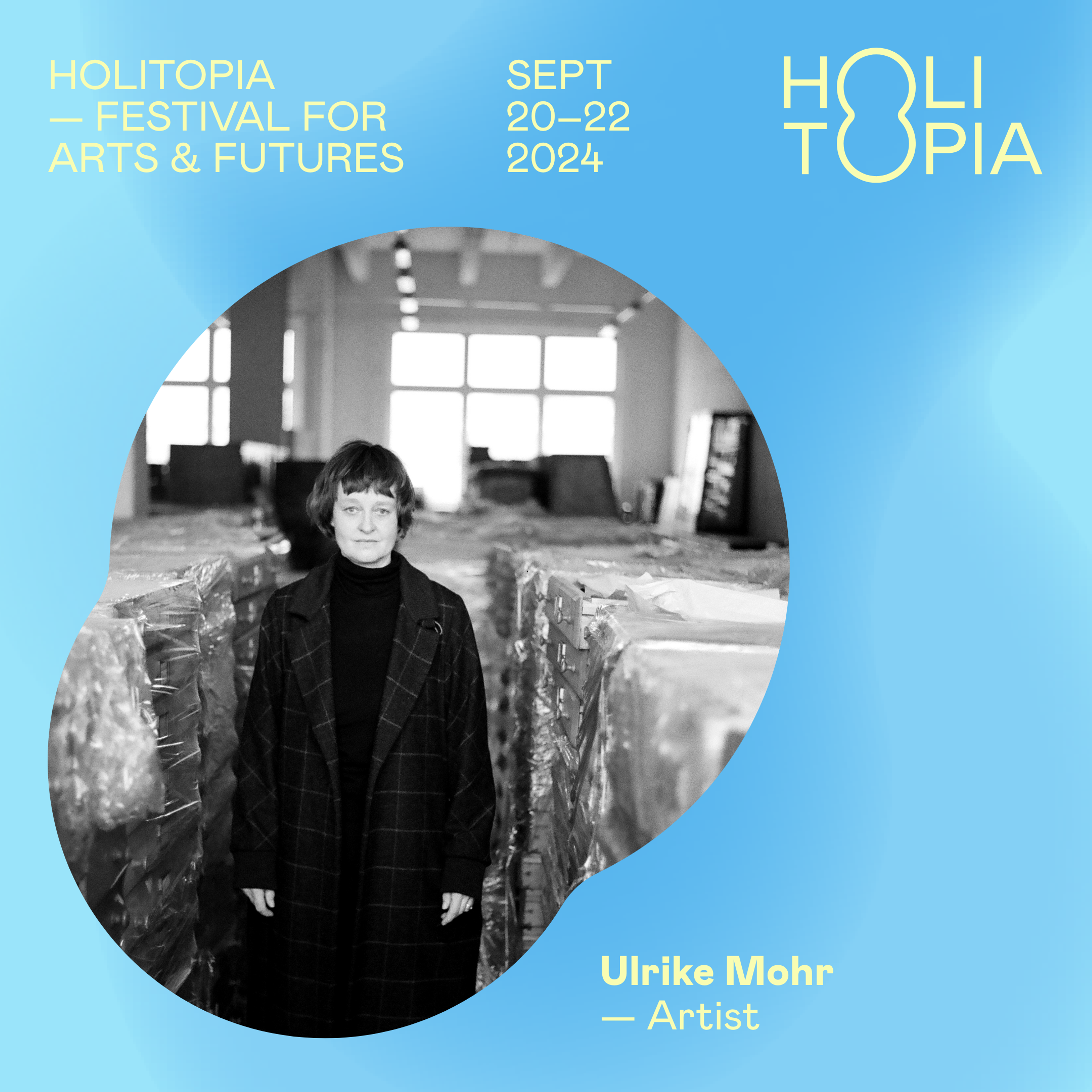
Stefanie Molthagen-Schnöring is a communication scientist and has been at HTW Berlin since 2011. After several years of teaching and research in the Business Communication degree programme, she became Vice Dean of the Department of Computer Science, Communication and Business in 2014. She has held the position of Vice President for Research and Transfer since 2019.
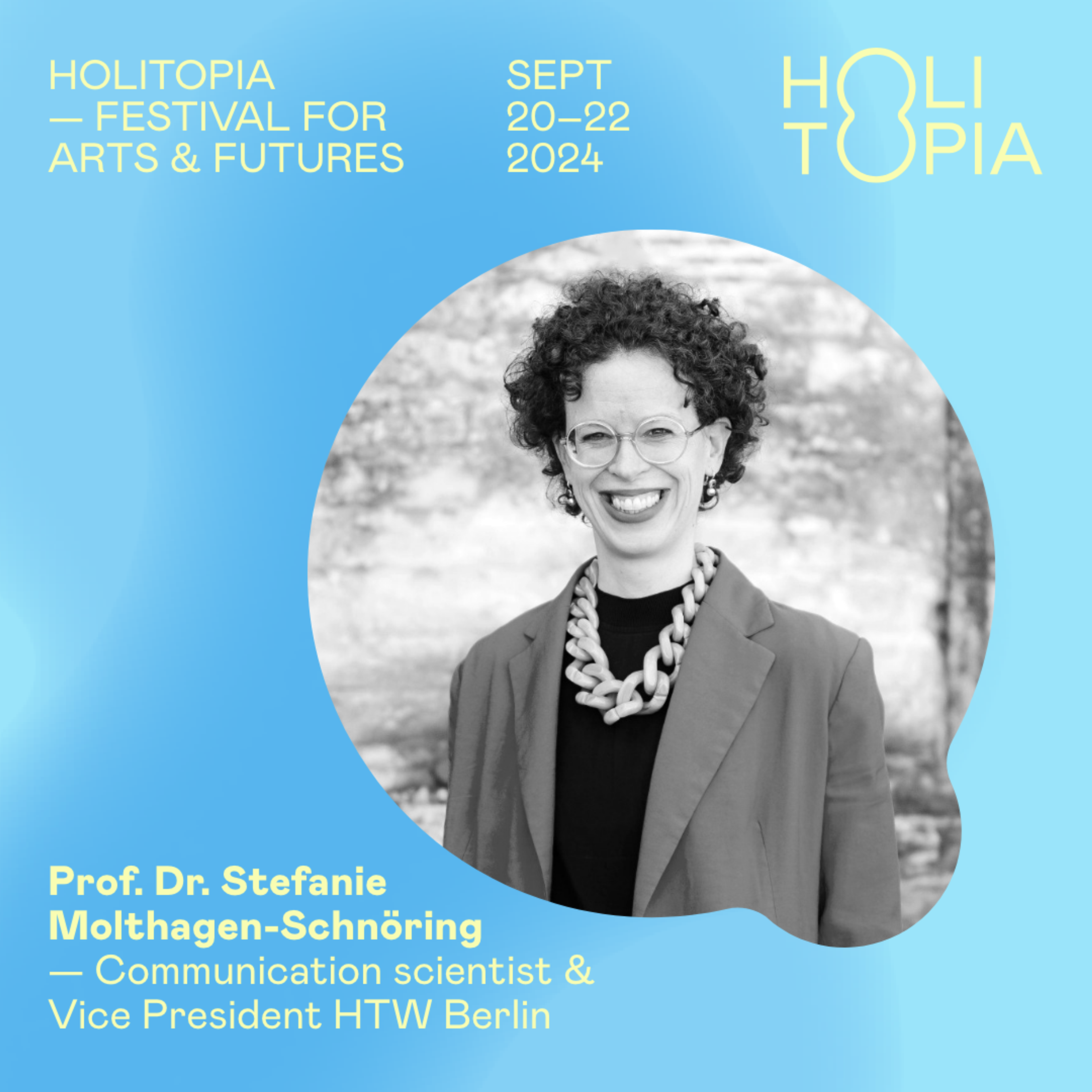
Chrissie Muhr is an architect, researcher and curator based in Basel. She is Co-Managing and Artistic Director of Experimental in Berlin, a non-profit organization and programme fostering practice-based experimental and research work for sustainable architecture futures. Latest Muhr was curator and editor of the exhibition and publication Reset Materials – Towards Sustainable Architecture at Copenhagen Contemporary in 2023. She was the inaugural Artistic Director of the Architekturwoche Basel 2022 and the first reuse Basel Pavillon. With a multidisciplinary practice she was senior researcher and curator at Vitra and the Arch+ Magazine in Berlin. She teaches and crits internationally at ETH Zurich, HEAD Genève, HGK Basel, écal Lausanne, TU Munich or AA School London. In 2021, she initiated Post Carbon Material Practices, a three-year research cycle and AA Visiting School / the Laboratory at the State Academy of Fine Arts (ABK) Stuttgart.
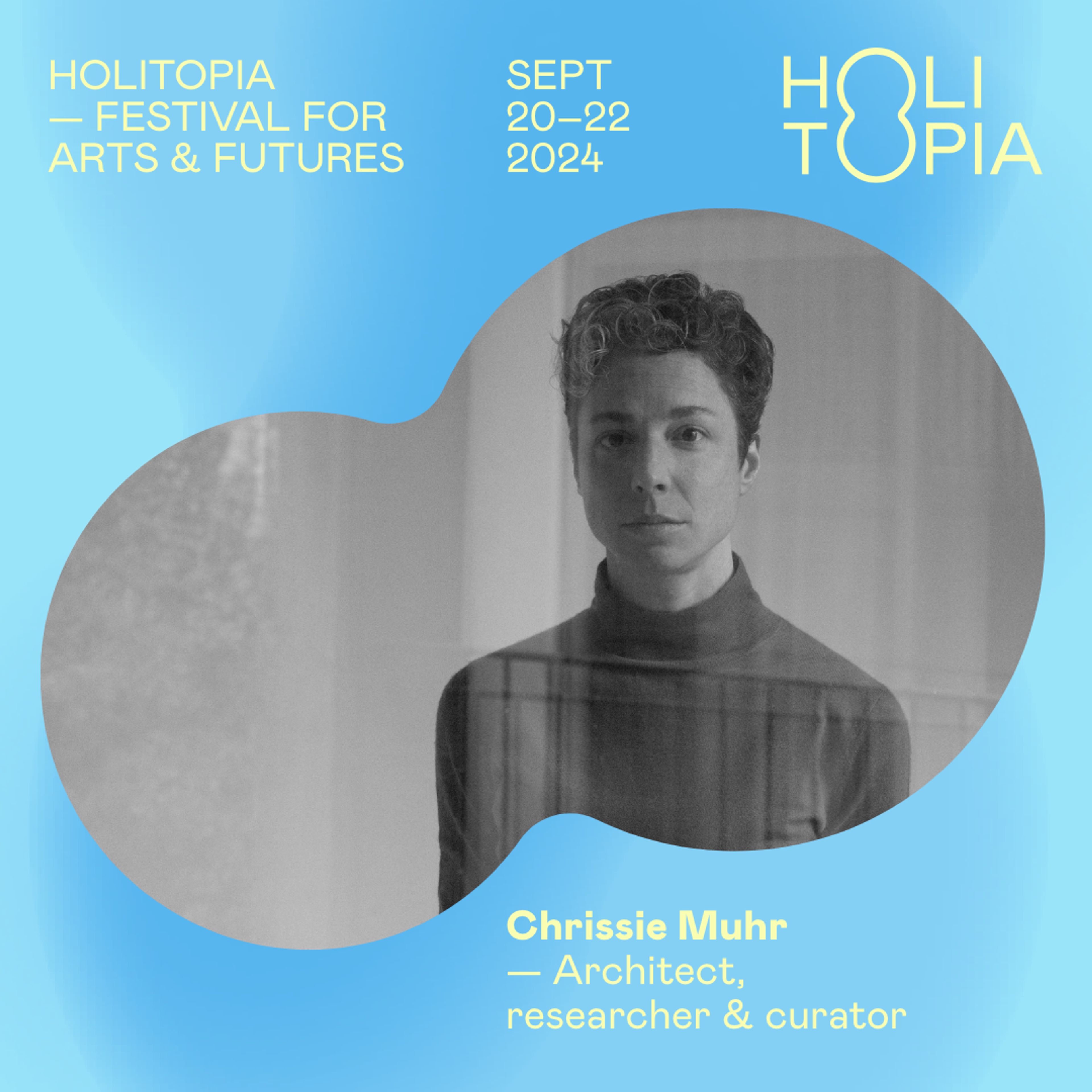
Antje Nestler has a Master's degree in Communication and Language with a focus on Media Studies. Before joining the Cluster Matters of Activity at Humboldt University in June 2019, she worked on various projects at the Fraunhofer Heinrich Hertz Institute in Berlin. She managed the showroom of the Smart Data Forum, a venue for knowledge transfer funded by the Ministry of Economic Affairs and Energy for small and medium-sized enterprises, which displayed the topics of digitalization, artificial intelligence and smart data comprehensible to around 6,000 visitors annually. Since 2017 Antje Nestler is also a certified Systemic Life & Business Coach. She is currently testing experimental science communication formats and takes care of events, public relations, public image, press and last but not least internal communication.
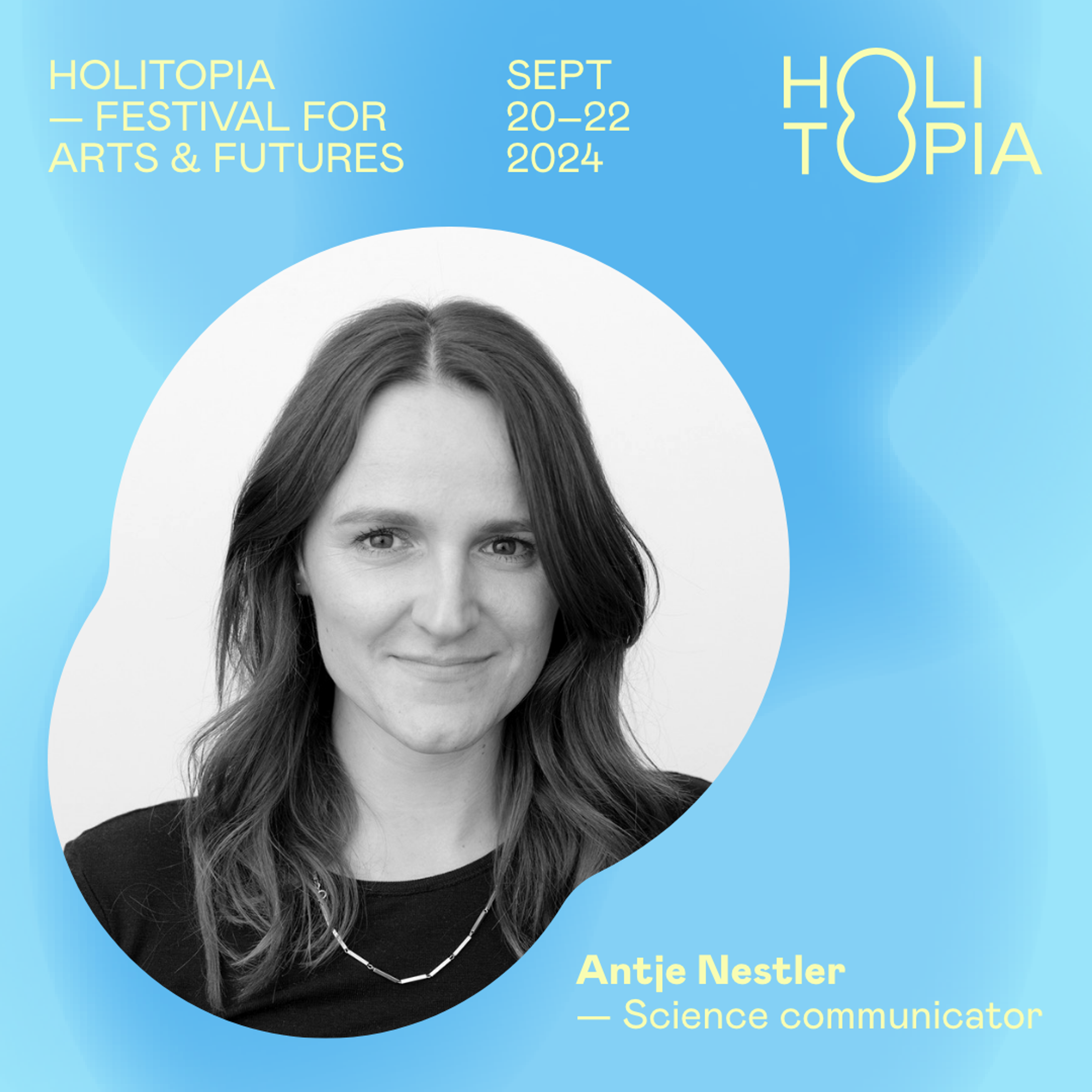
Stefanie Ollenburg is a researcher, future designer, and facilitator for competence development of future literacy, and transformation processes. She specializes in combining applied participatory futures research with design methods. Having worked as an art and creative director before, she completed a master's degree in Futures Studies at the Freie Universität Berlin. In her master's thesis, she developed the Futures Design Process Model, which combines Research through Design with the concept of multiple futures. She is currently a research associate at the Institute for Design Research at the Hochschule für Bildende Künste Braunschweig (HBK) in the SE2A Cluster of Excellence project ScenAIR2050. The project focuses on plausible future scenarios of the air transport system in order to critically examine its transformation towards sustainability. She also a freelance consultant and teaches participatory methods in futures studies and the method of futures literacy labs at the Freie Universität Berlin.
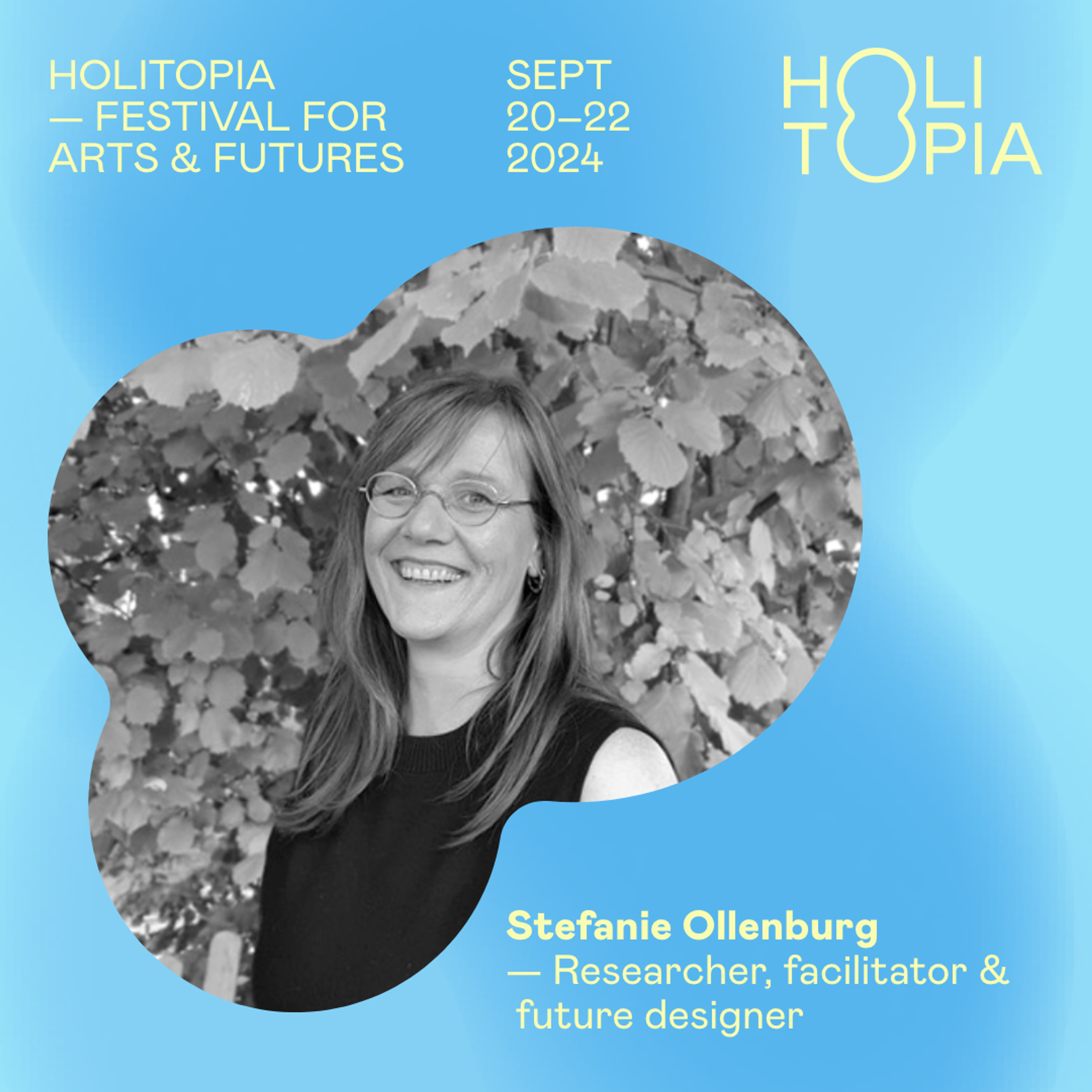
Erik Øverland has more than 30 years international experience from Research, Education, Software Engineering, Scenario based Strategic Planning, HRM, Political Work and Business Administration. He is the author of several books and scientific articles on Futures and also represents a high Level formal Academic Competence, comparable to two PhDs. Erik Øverland is the President of the WFSF (NGO), the most acknowledged network for Futurists in the World, the WFSF is a UNESCO partner.
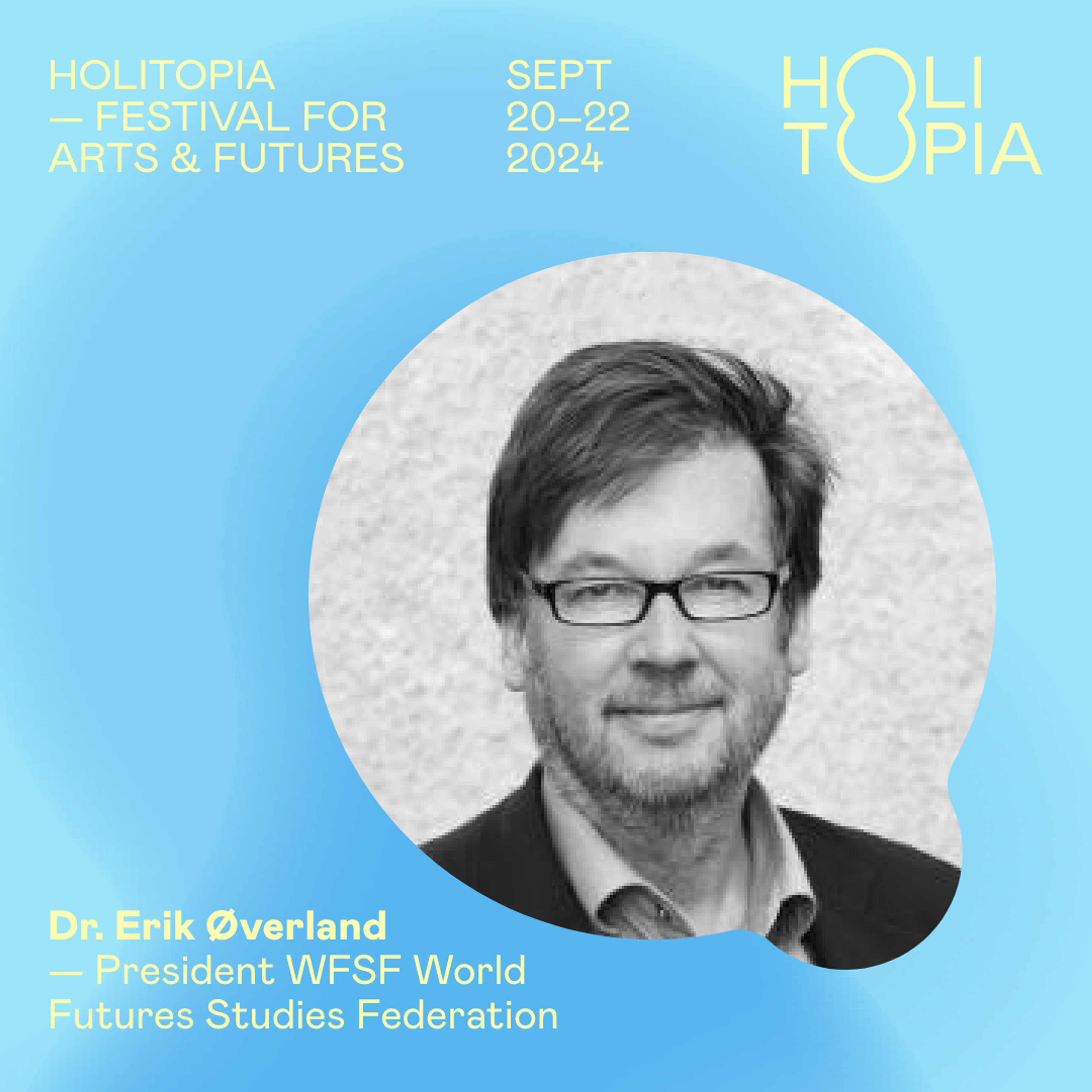
Jana Picciani is a seasoned product manager with a decade of experience in developing digital products in agile environments. She studied Communication and Media Studies at TU Berlin and developed a passion for games studies during that time. Currently, she is supporting the IFAF-funded Re:Play project on Games for Leadership Development at HTW Berlin, where she co-designs and facilitates playful experiences to help businesses develop the right skills to deal with future topics and challenges.
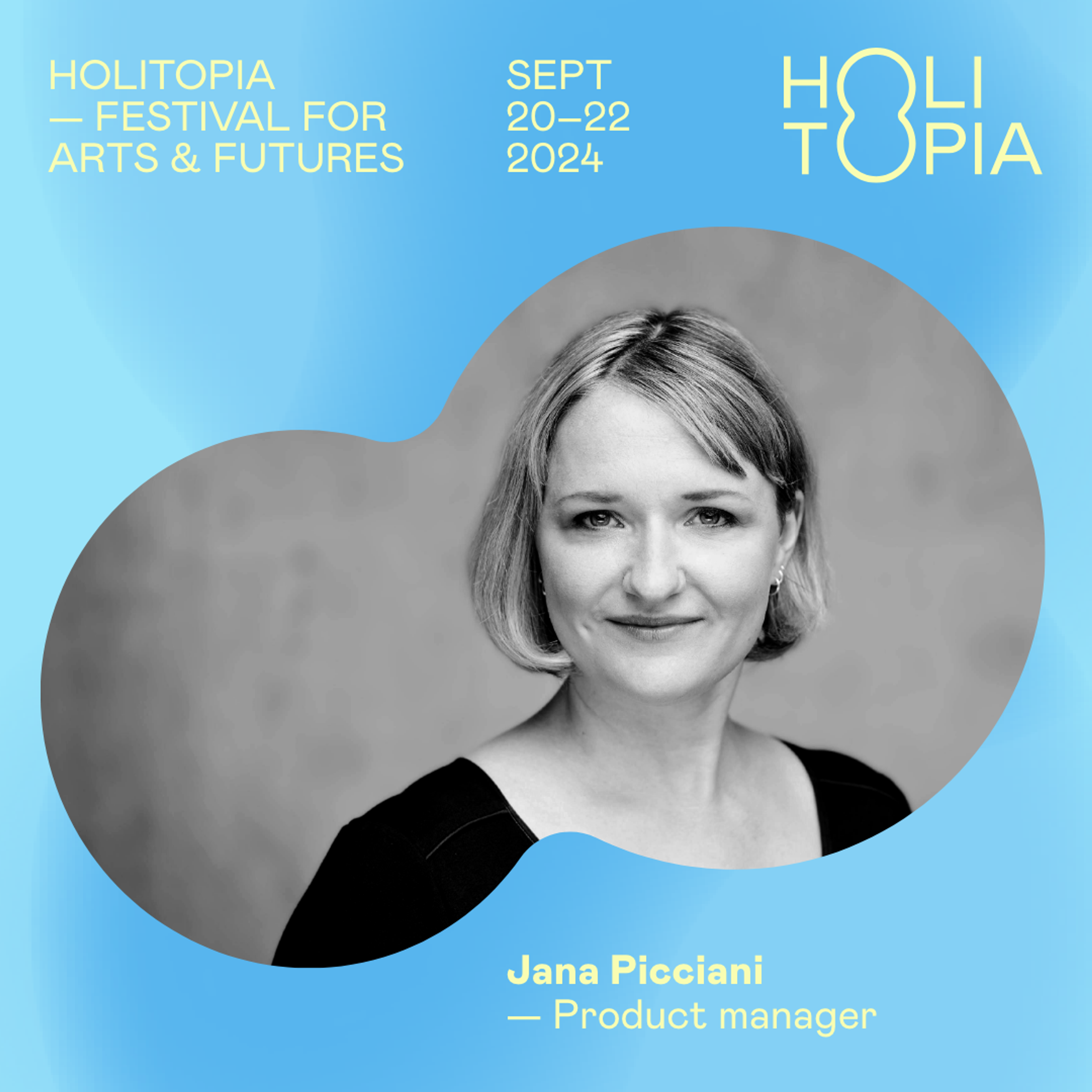
Charlie Stein is a visual artist dealing with dominant cultural aesthetics questioning existing modes of perception within the context of a highly digitized, visually overstimulated world. Her material is gathered through extensive research and translated into drawings, paintings, sculpture and text. Her focus lies on social structures, digital media and contemporary forms of communications and their aesthetics. She currently is a guest professor for painting and drawing at the HfBK Hamburg. Previously she has given lectures at the Pratt Institute in New York, the UdK Berlin, and the Kunsthochschule Weissensee in Berlin. Stein completed her master’s degree in fine arts in 2017. She has also earned graduate degrees in political science, sociology, linguistics and English literature. In 2019, Stein received the Art Prize of the City of Limburg, and in 2022, she was awarded the development grant of the Stiftung Kunstfonds Berlin. In 2020, she was nominated for the Villa Aurora Grant in Los Angeles, and in 2024 she was the recipient for the residency program at ISCP in New York. Charlie Stein’s work has been shown internationally, including at the Songjiang Art Museum in Shanghai, the Sinopale 6, Kristin Hjellegjerde in London, within the collaboration House of Poetics with the Cooper Union in New York, as well as at the Museum Villa Merkel in Esslingen and as part of the Sculpture Triennial Bingen. Charlie Stein lives and works in Berlin.
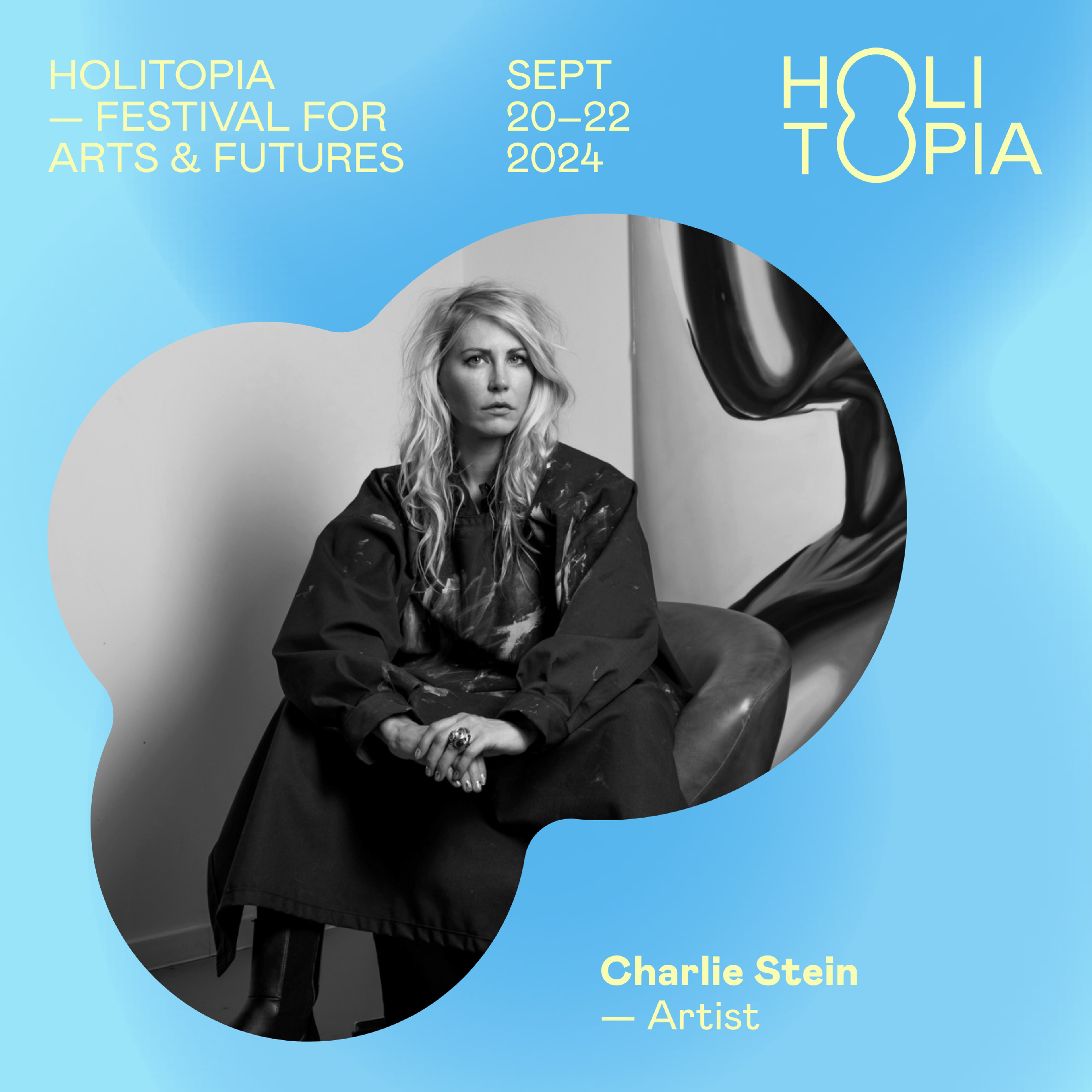
Christian Stein studied German and Computer Science, received his doctorate in Literature and has since been active at the interface of the humanities and technical sciences. At Image Knowledge Gestaltung he was leader of the project Architectures of Knowledge and co-founder of gamelab.berlin, which deals with the game as a cultural technique. In this context, he has focused on the development of game prototypes and VR applications for exhibitions and medical contexts. In addition, Christian Stein deals with artificial and natural languages as well as an interdisciplinary theory of the interface, to which he is currently completing his habilitation project. At Matters of Activity in the project Object Space Agency he is working on the conception and implementation of forms of interaction which are intended to make objects and people both active and experienceable in a new way.
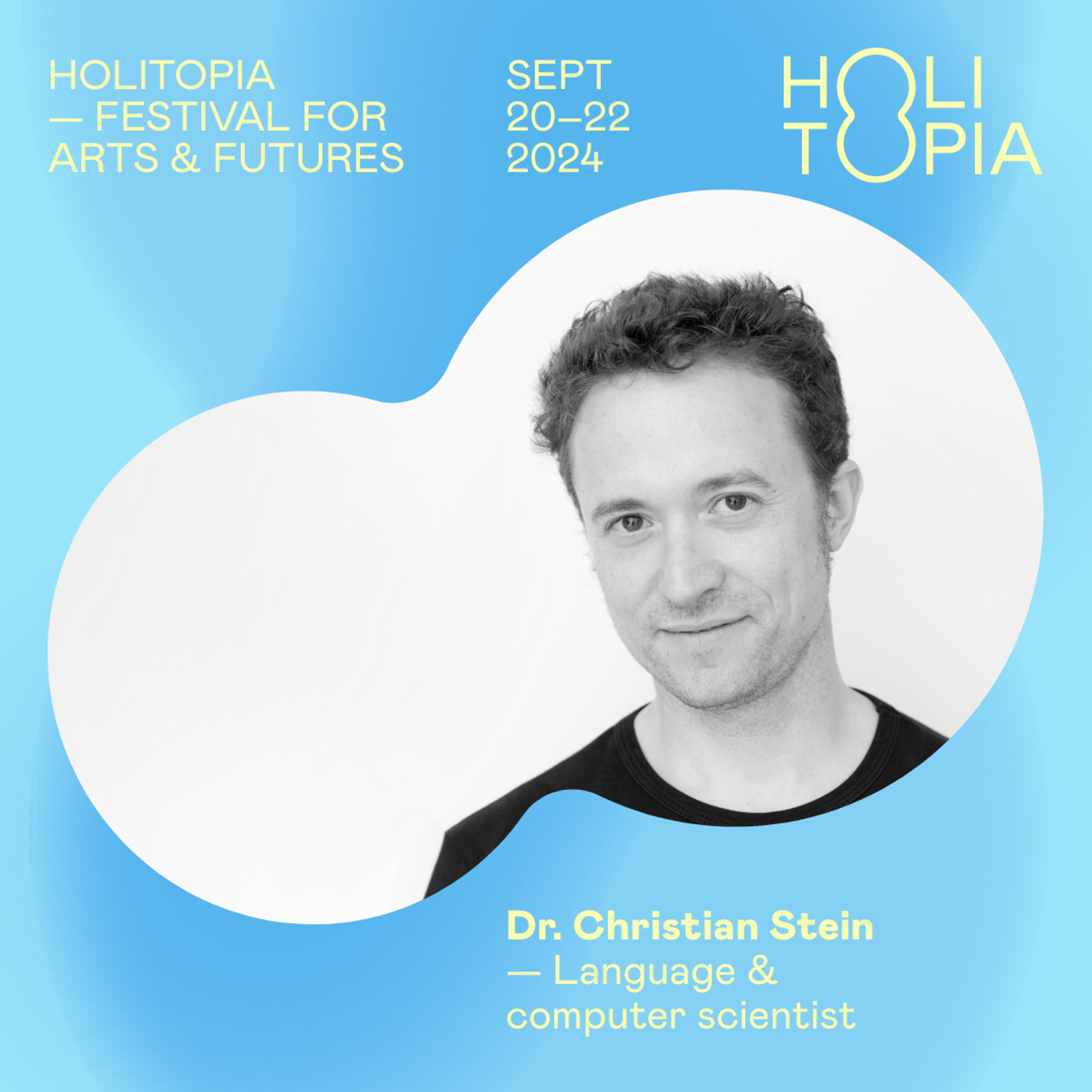
Andrea Thilo graduated in social and business communication at the Berlin University of the Arts (UdK), completed a traineeship at Norddeutscher Rundfunk and worked as an on-air reporter and editor for NDR and ARD, two years as a presenter for 'liebe sünde' (Pro 7) and as a freelance on-air reporter for BBC1. She has been a freelance journalist and documentary film producer since 1998 and was an entrepreneur in Berlin for 12 years after founding the film production company BOOMTOWNMEDIA GmbH&CoKG in Berlin with her partners Thomas Grube and Uwe Dierks in 1999. In 2005, they received the German Film Award as producers of the international cinema success RHYTHM IS IT! In 2011, she set up her own business in the field of moderation, conference conceptualisation and training with a focus on digital transformation, civil society & sustainability, culture, diversity & education.
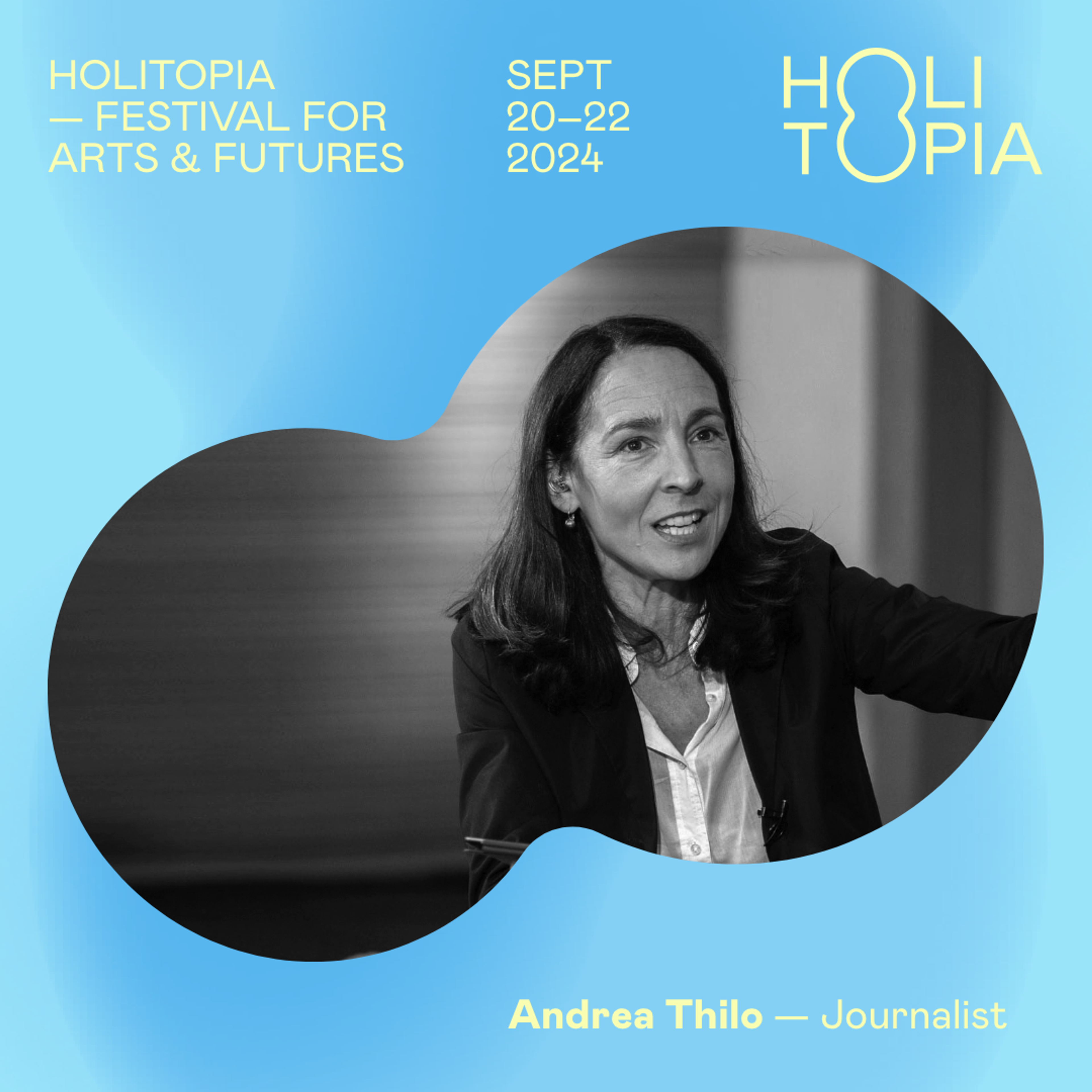
Rasa Weber is an experimental designer, researcher and diver based between Zurich and Berlin, exploring the narrative and choreographic potential of materials, ecologies, and environments. Her design concepts are characterized by a strong narrative approach and critical ecological thinking. She regularly teaches at international universities and is currently a research associate and doctoral candidate at the Zurich University of the Arts ZHDK as part of the Swiss National Science Foundation project Interfacing the Ocean and a research associate at the Cluster of Excellence Matters of Activity at the Humboldt University in Berlin. She works interdisciplinary in the fields of design, materials research, marine biology, and design anthropology. She explores the design of artificial reefs and their potential for the development of a new design methodology, which she calls Sympoïetic Design, focusing on the creation of convivial spaces and the inclusion of various multispecies actors. Her research creates tangible invitations for humans, animals, microbes, animate and inanimate matter in the ocean. She is one of the founders of They Feed Off Buildings, a design and architecture collective, in collaboration with Luisa Rubisch. As founder of the studio Blond & Bieber, she worked with textile designer Essi Glomb on bio-based material and color concepts.
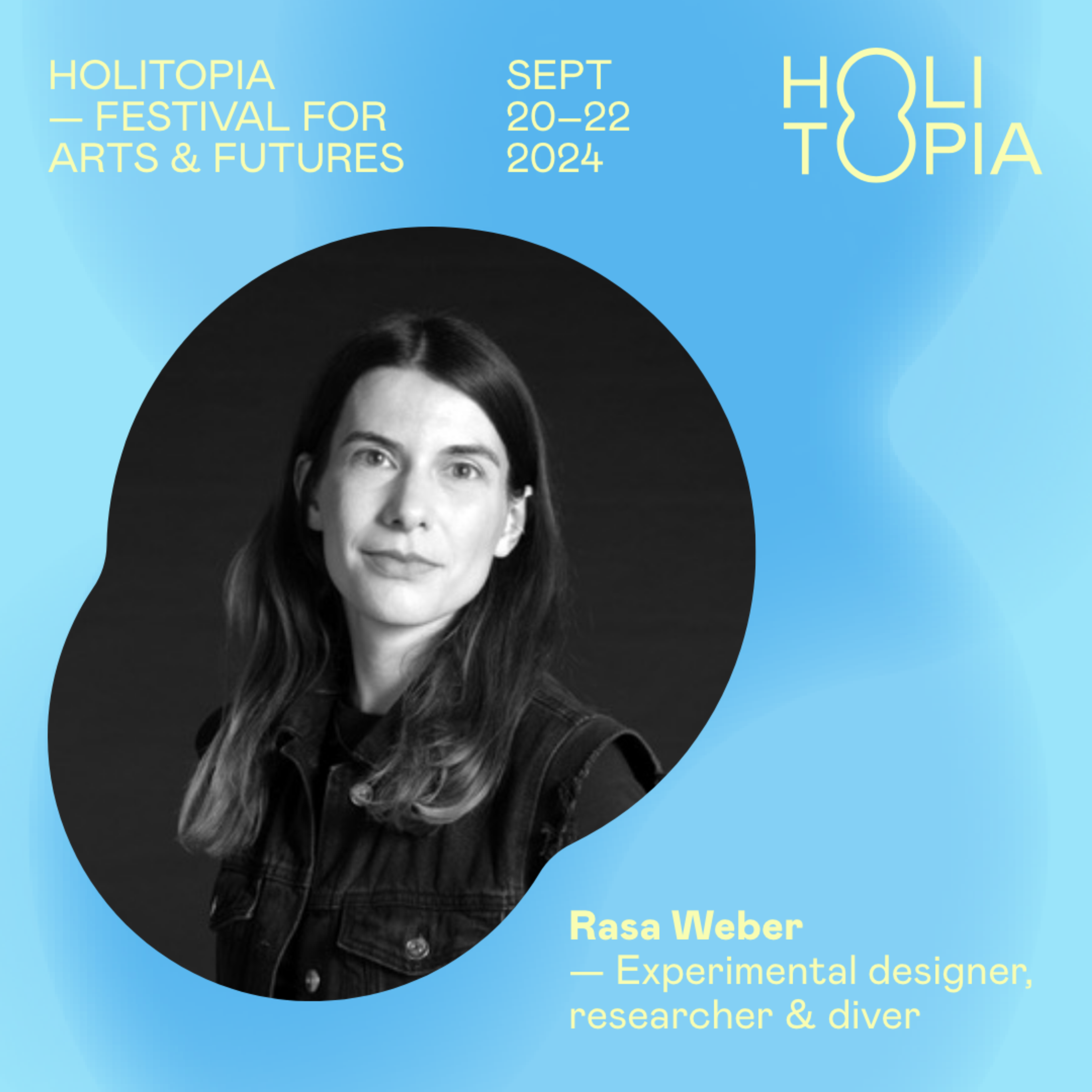
Kristin Werner coordinates the Experimental Laboratory for Science Communication CollActive Materials funded by the Berlin University Alliance. Within the project, she speculates with scientists and citizens about the role active materials might play in possible futures. As project manager and science communicator, she organizes the framework of the participatory project and tries out new formats to connect science and society. In 2019, Kristin Werner completed her PhD in physical chemistry at the Fritz Haber Institute of the Max Planck Society. She then worked at Futurium in Berlin as a science communicator, bringing science, business, and society into conversation about positive futures. As project manager, she was responsible for the development of the Futurium theme booklet, which has since accompanied visitors on their journey through possible futures.
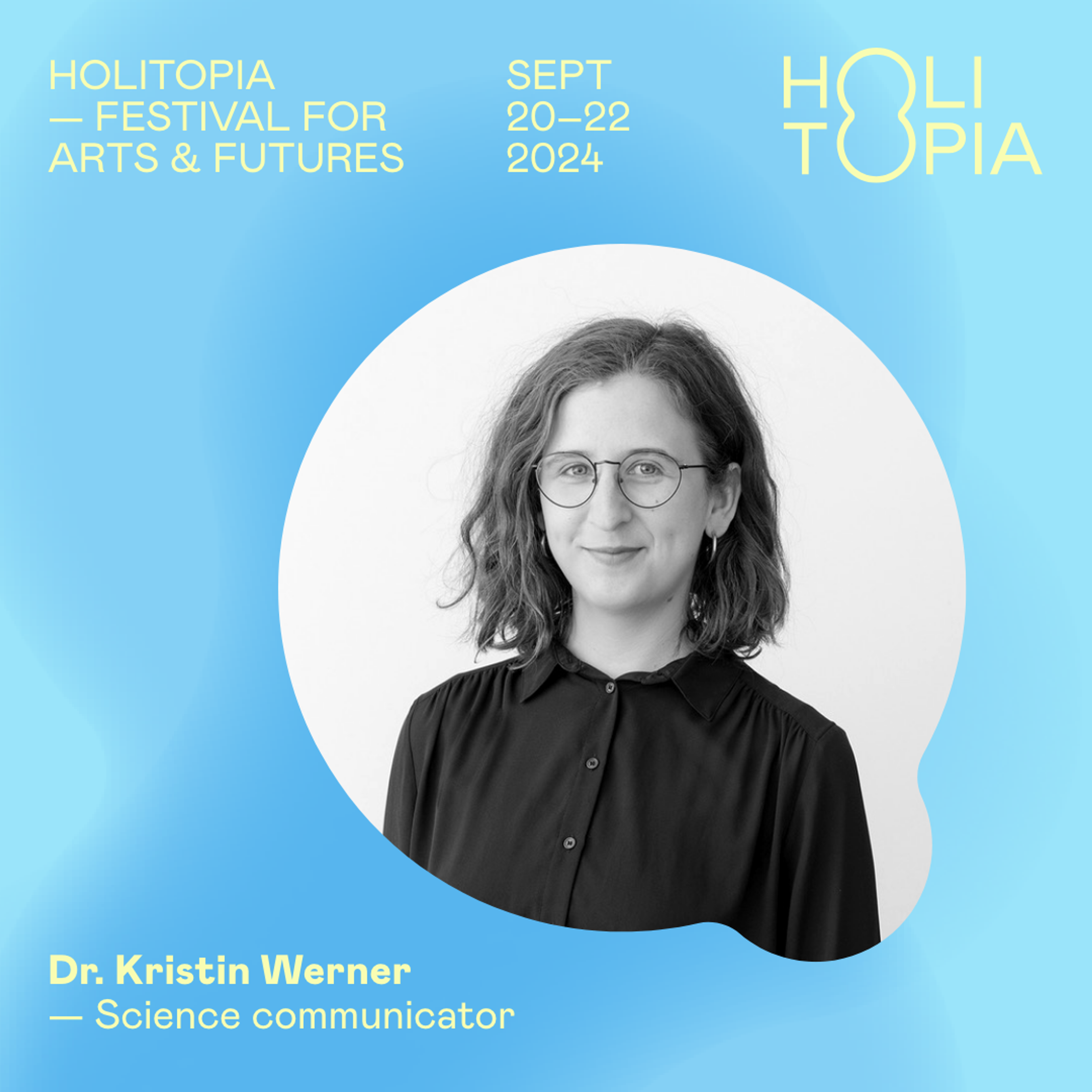
An ex-UK diplomat, Dr. Derek Woodgate is an award-winning, consulting futurist, educator, writer, speaker, and curator. He is President and Chief Futurist of The Futures Lab, Inc., a futures consultancy, founded in 1996. The company specializes in creating future potential for corporations and institutions and has consulted for over 170 corporate clients, governments, associations, city, regional management, and universities. (http://futures-lab.com). In the futures field, Derek is best known for the creation and development of experimental futures, which has been an essential feature of both his teaching, and transformative education consulting at multiple universities worldwide. He is currently an Advisor to the VP of Academic Studies at PMU, in Saudi Arabia, an Executive Board Member at the Center for Futures Studies at the University of Dubai, a faculty member at the University of Houston, USA. and part of a Norwegian team for educational cooperation and programs in Rwanda, Uganda and Ethiopia, specifically for the introduction of programs for the future of advanced multimedia, entertainment and learning technologies.
